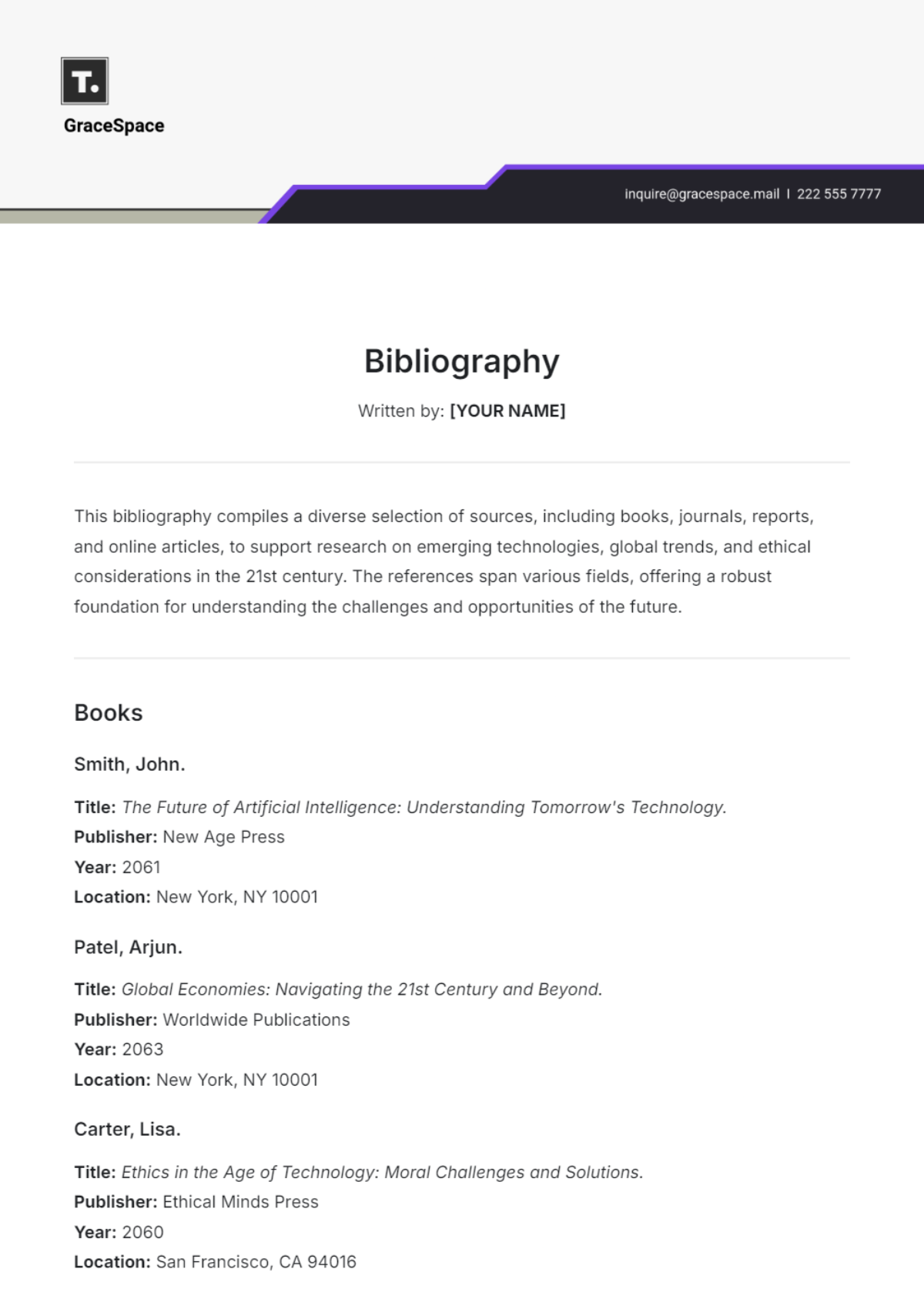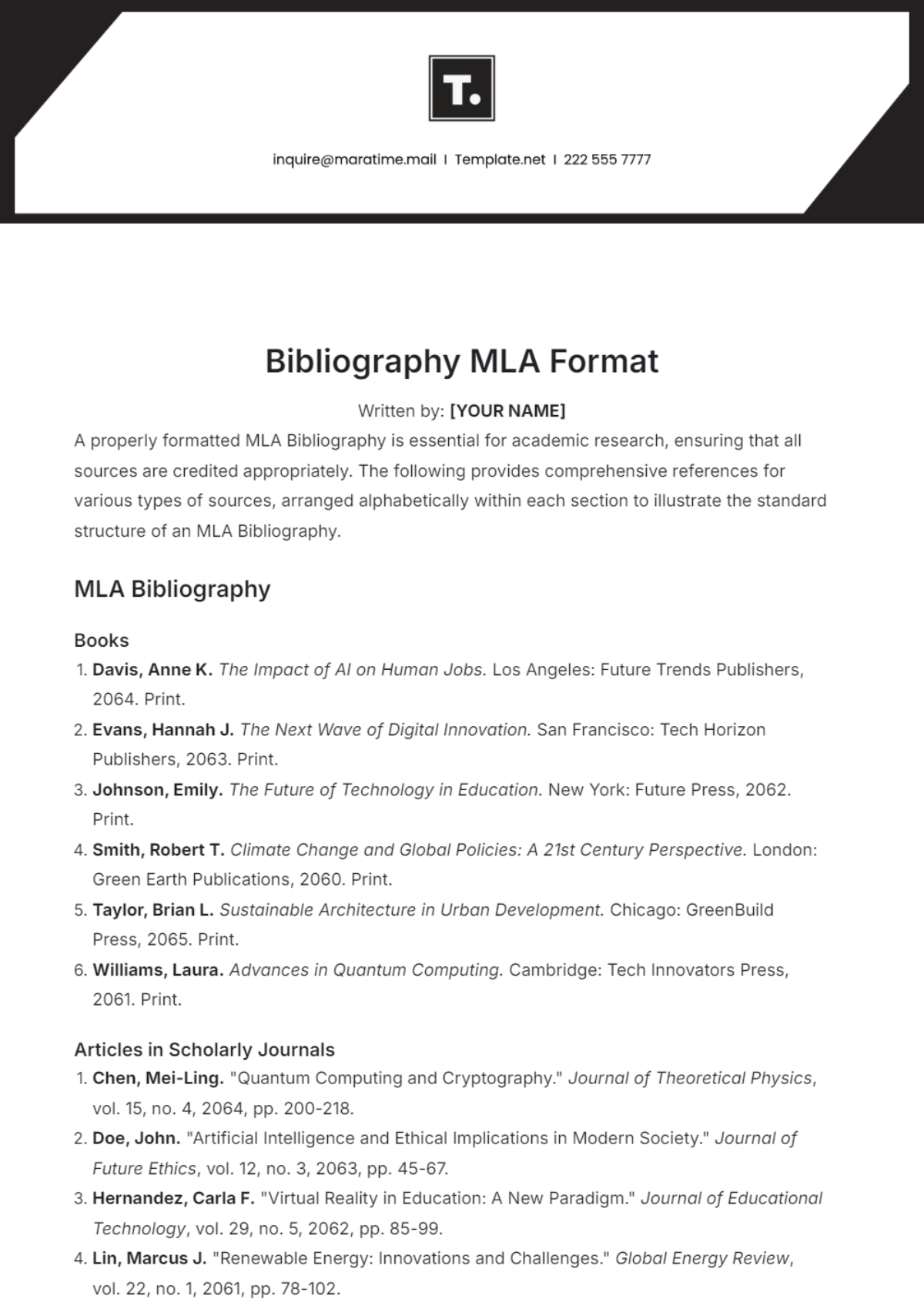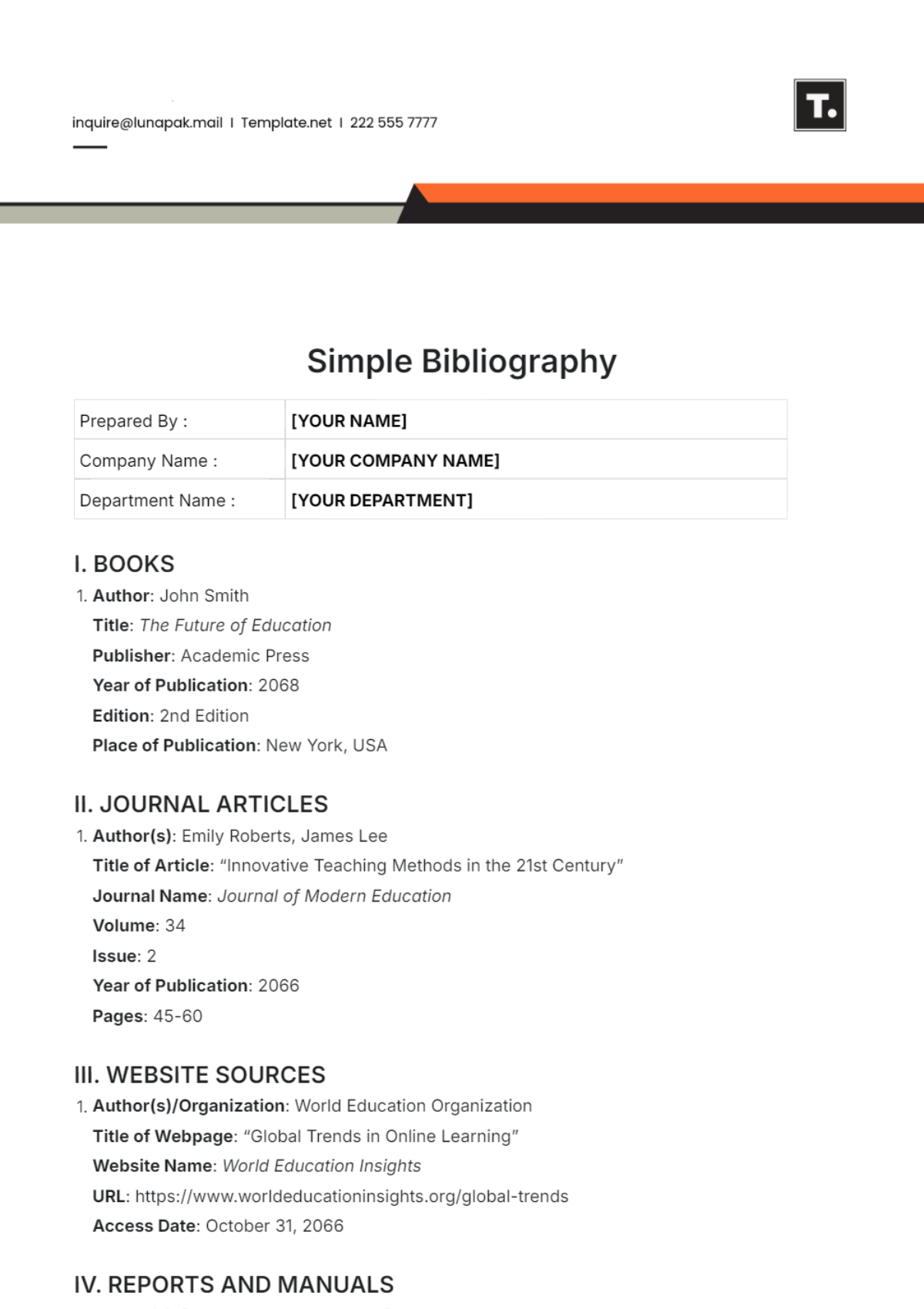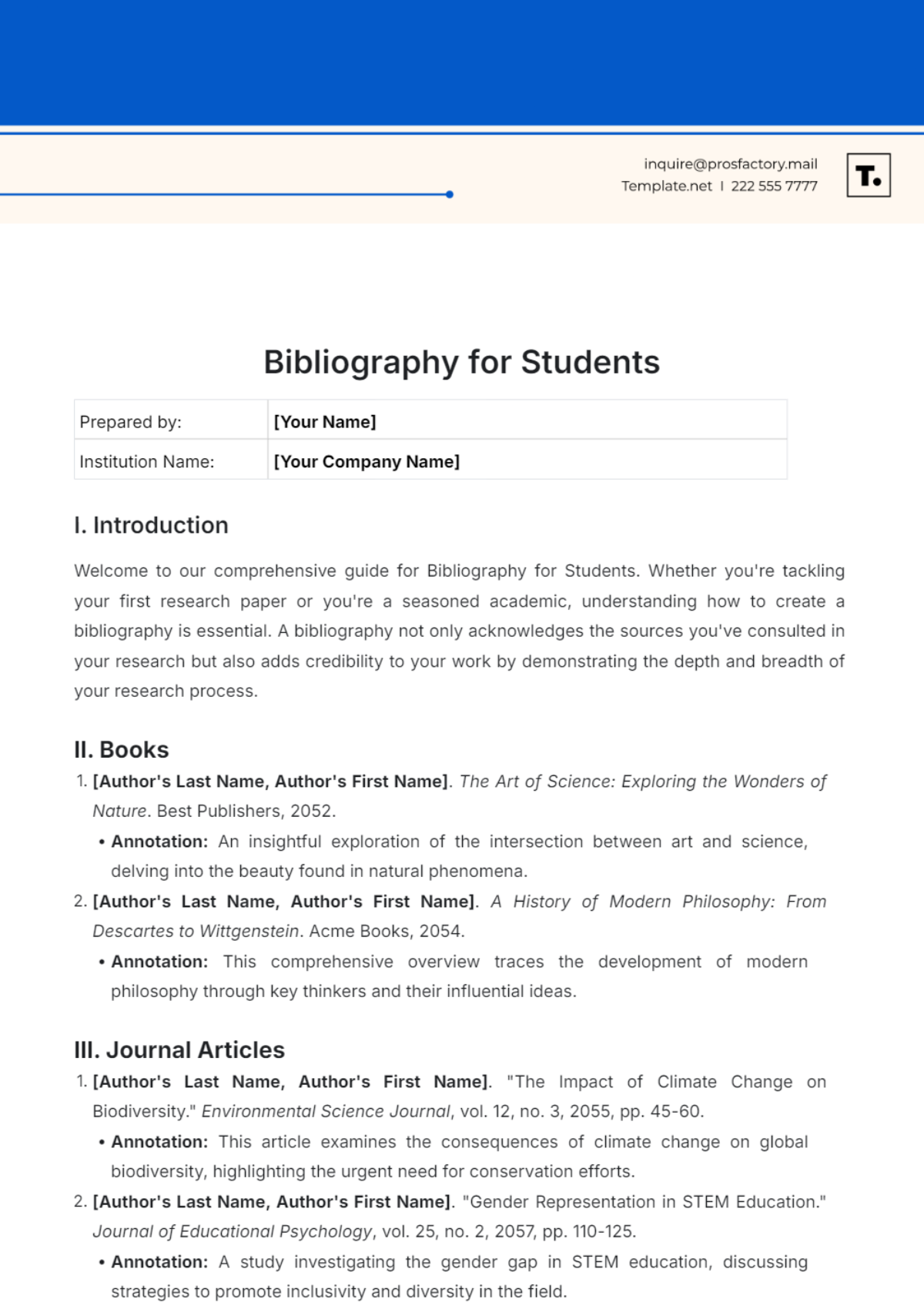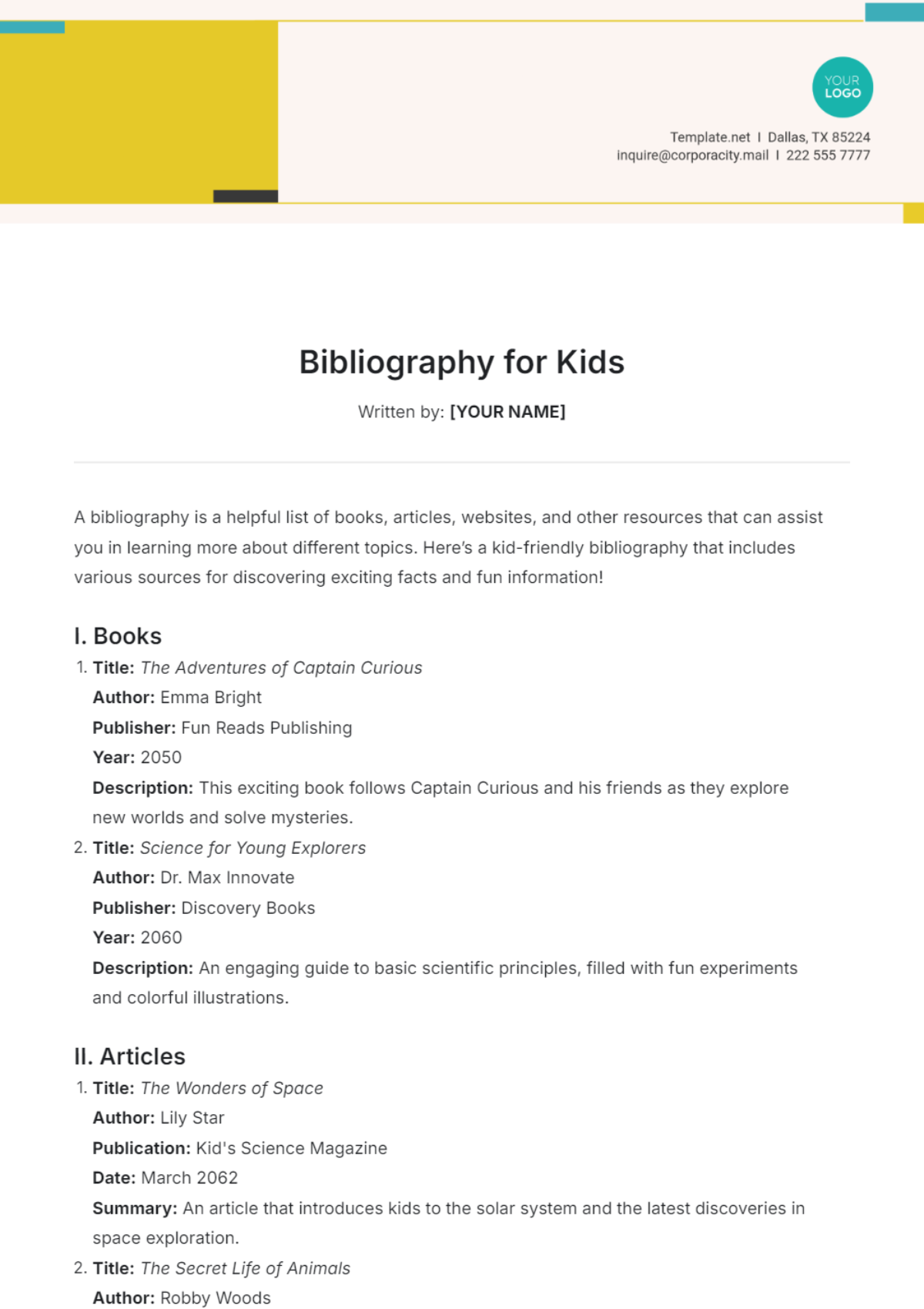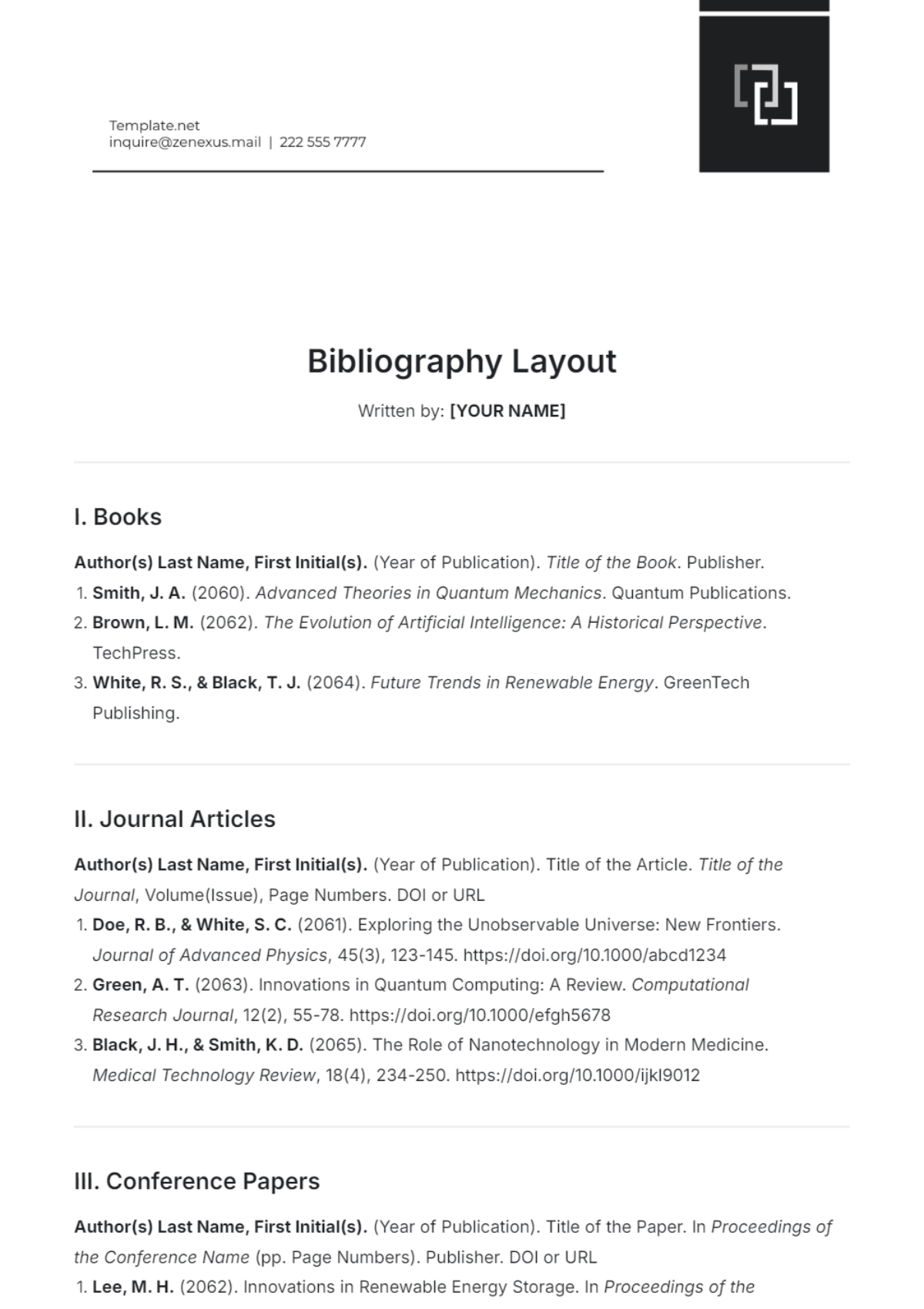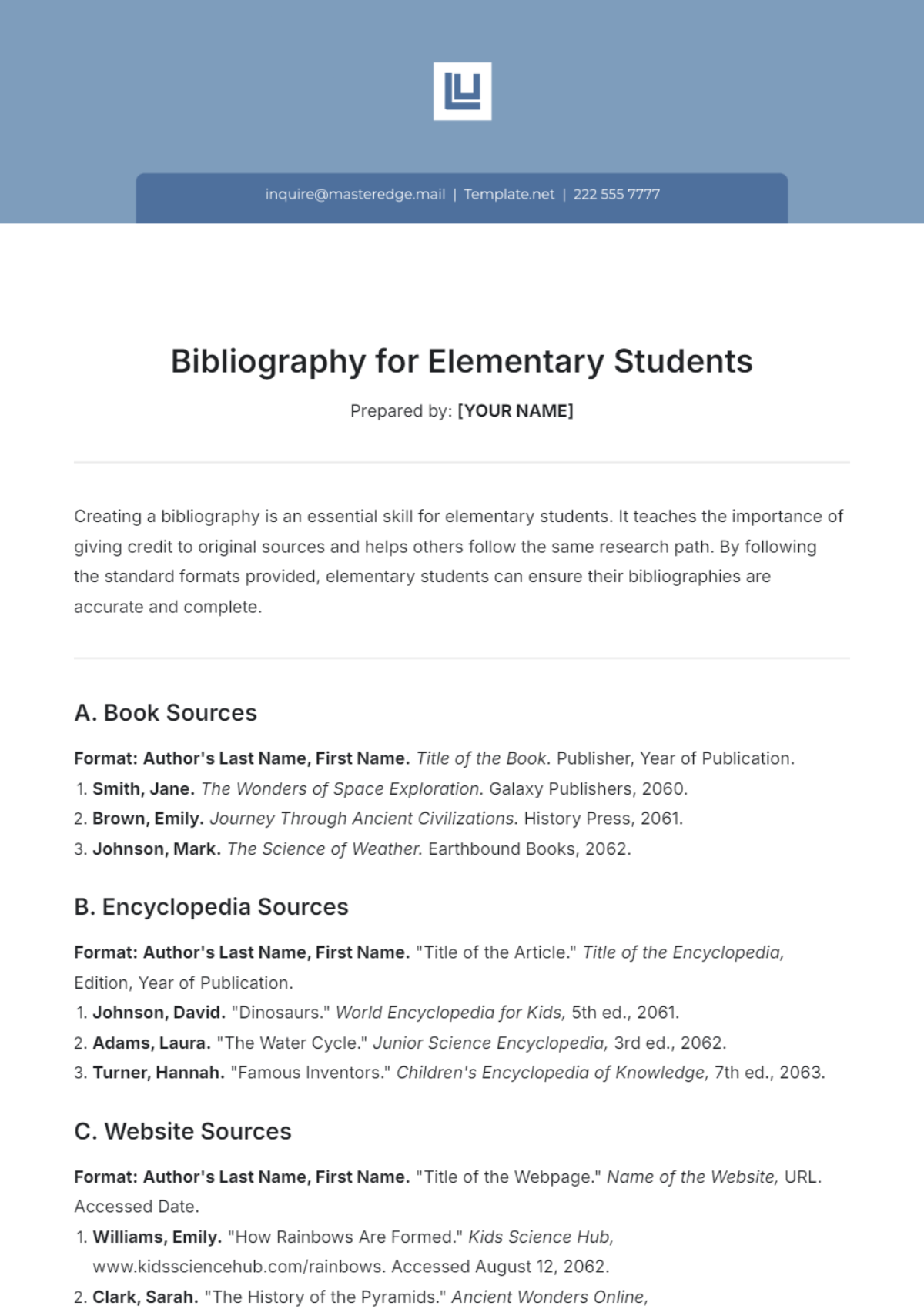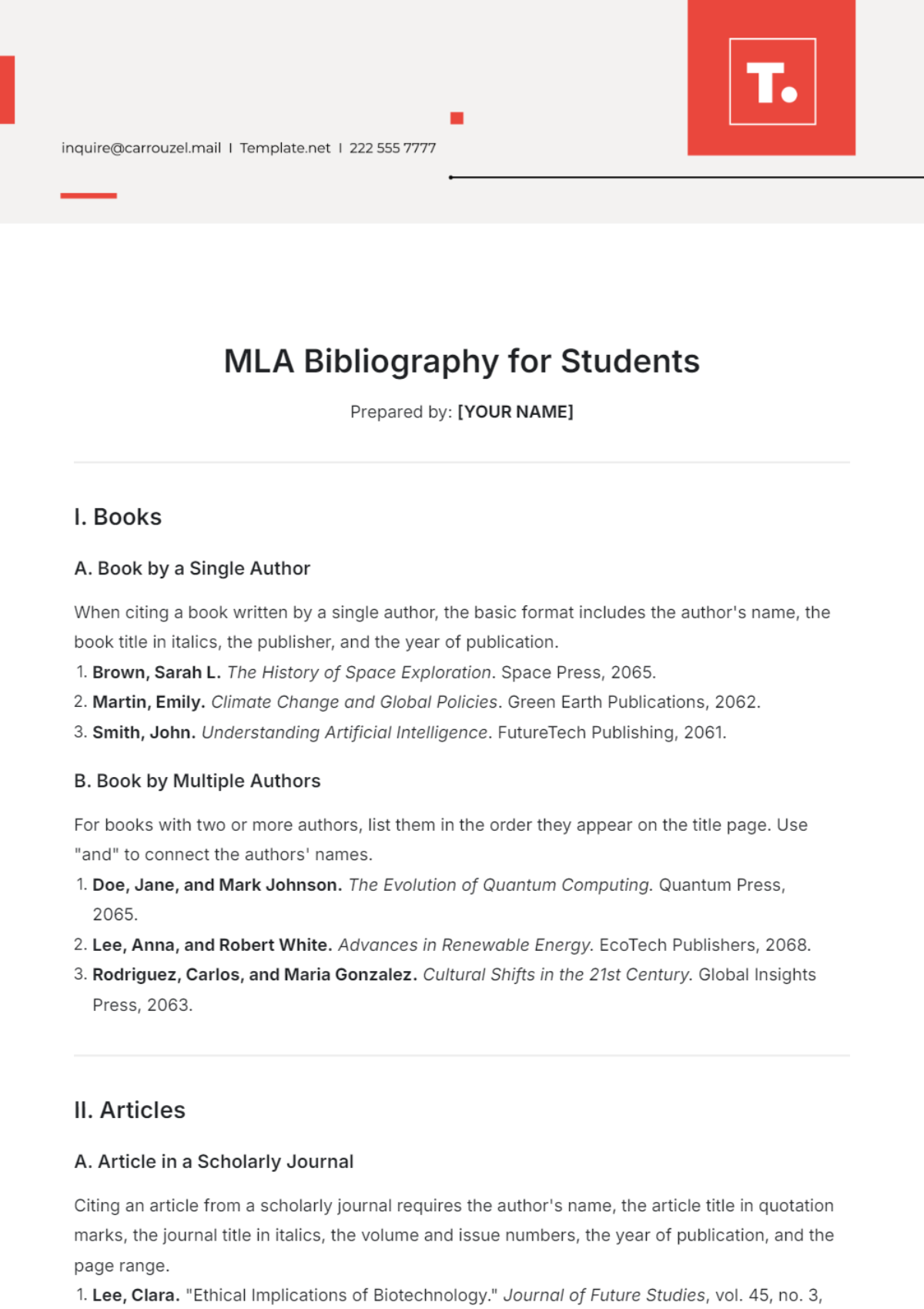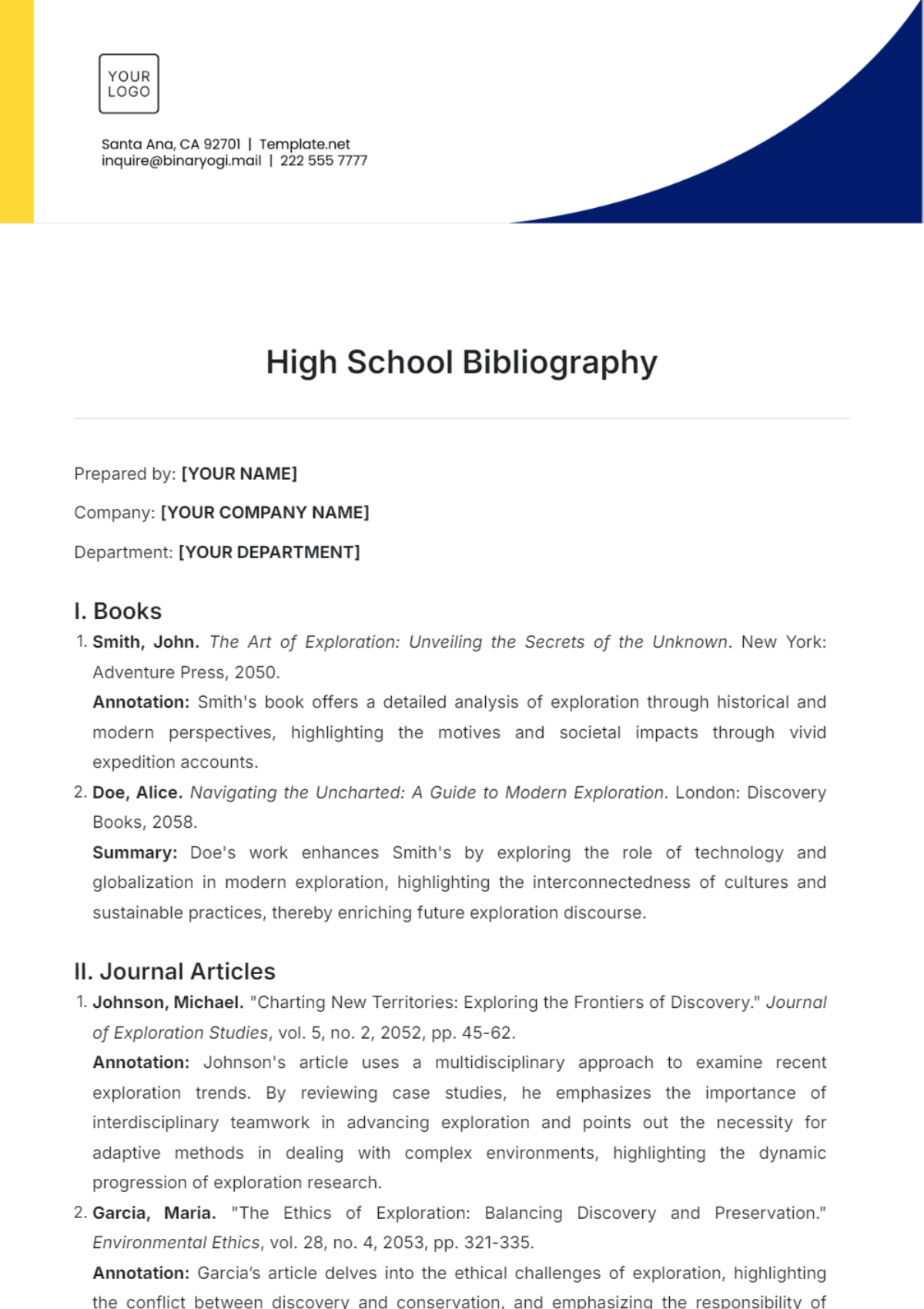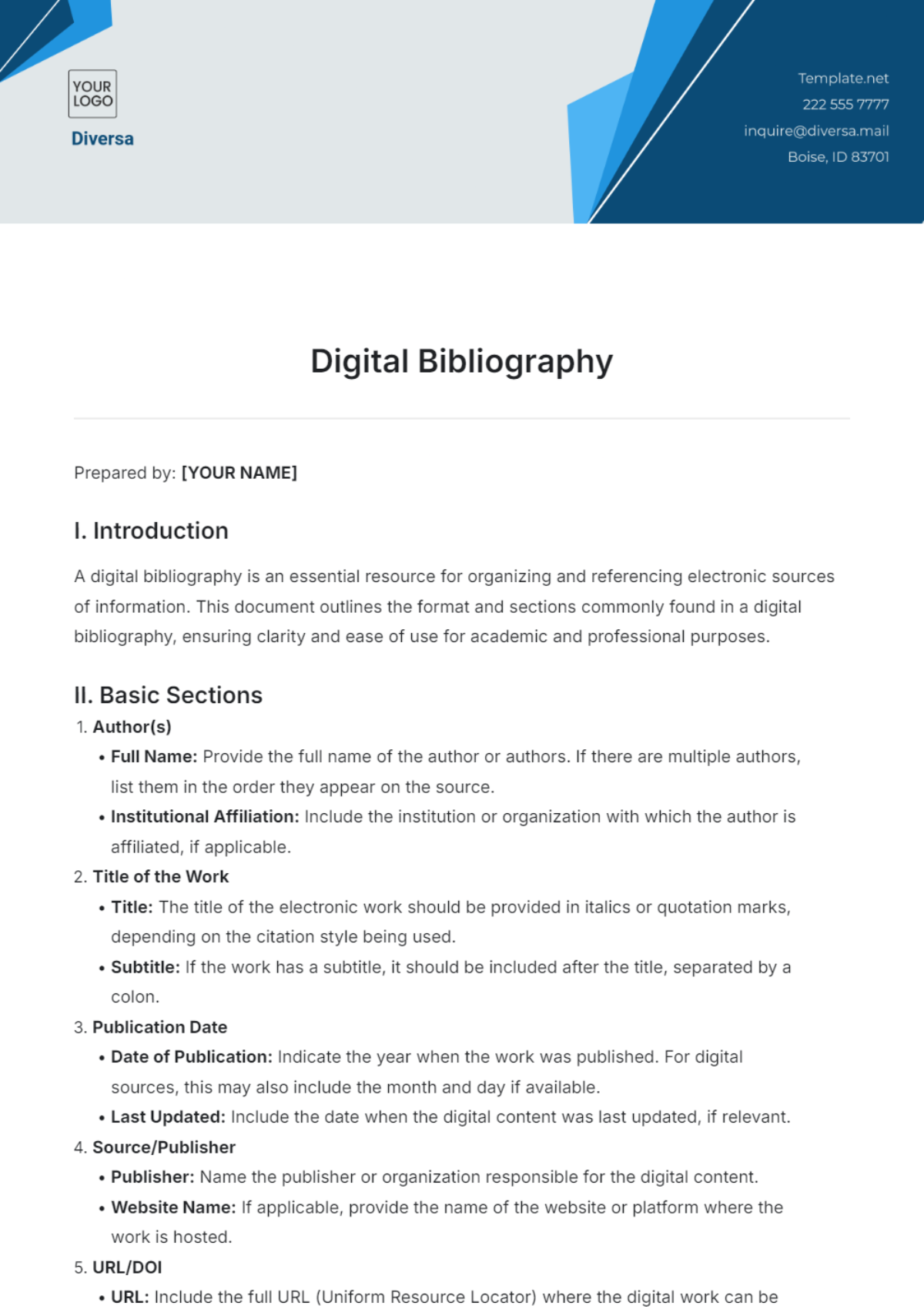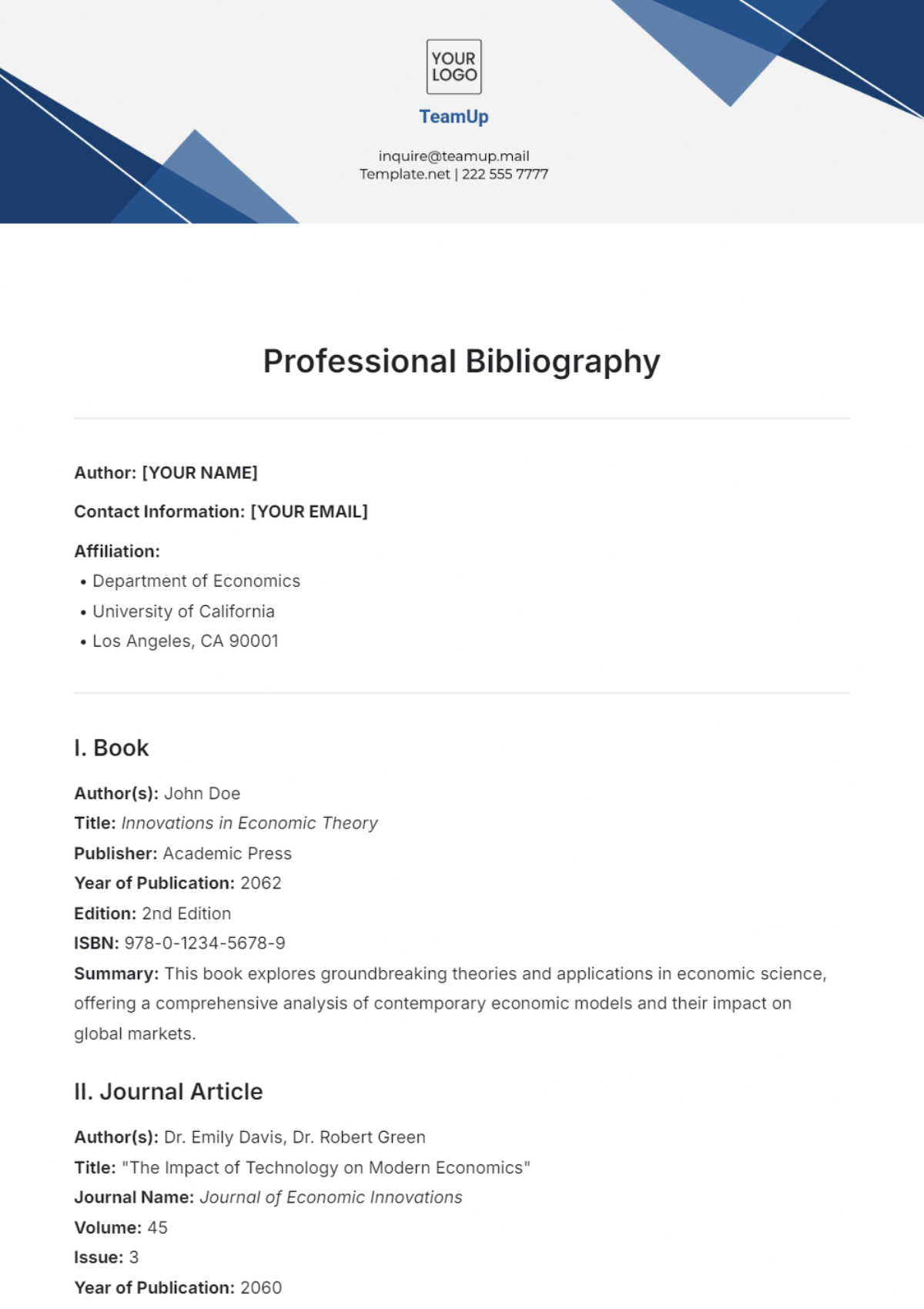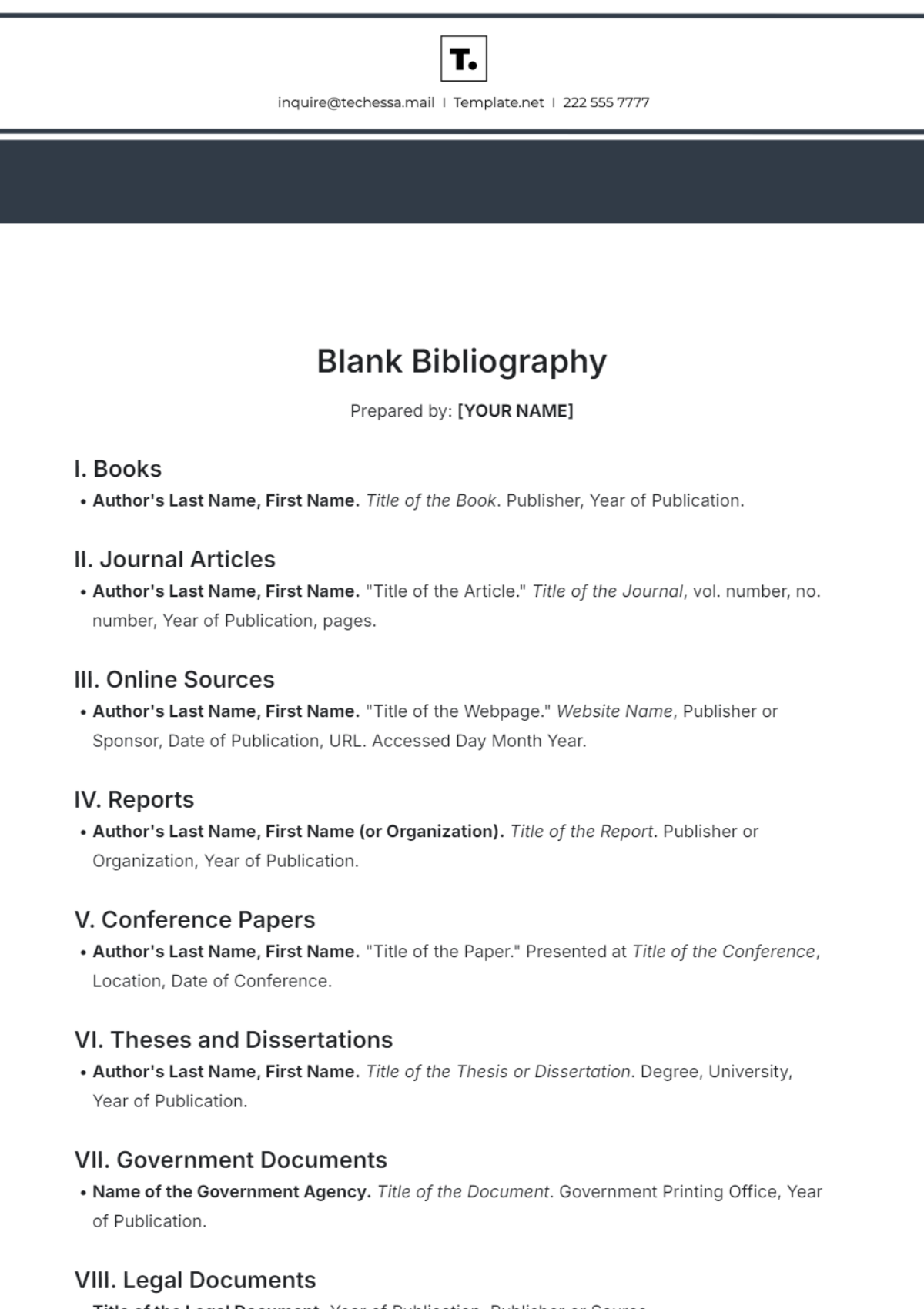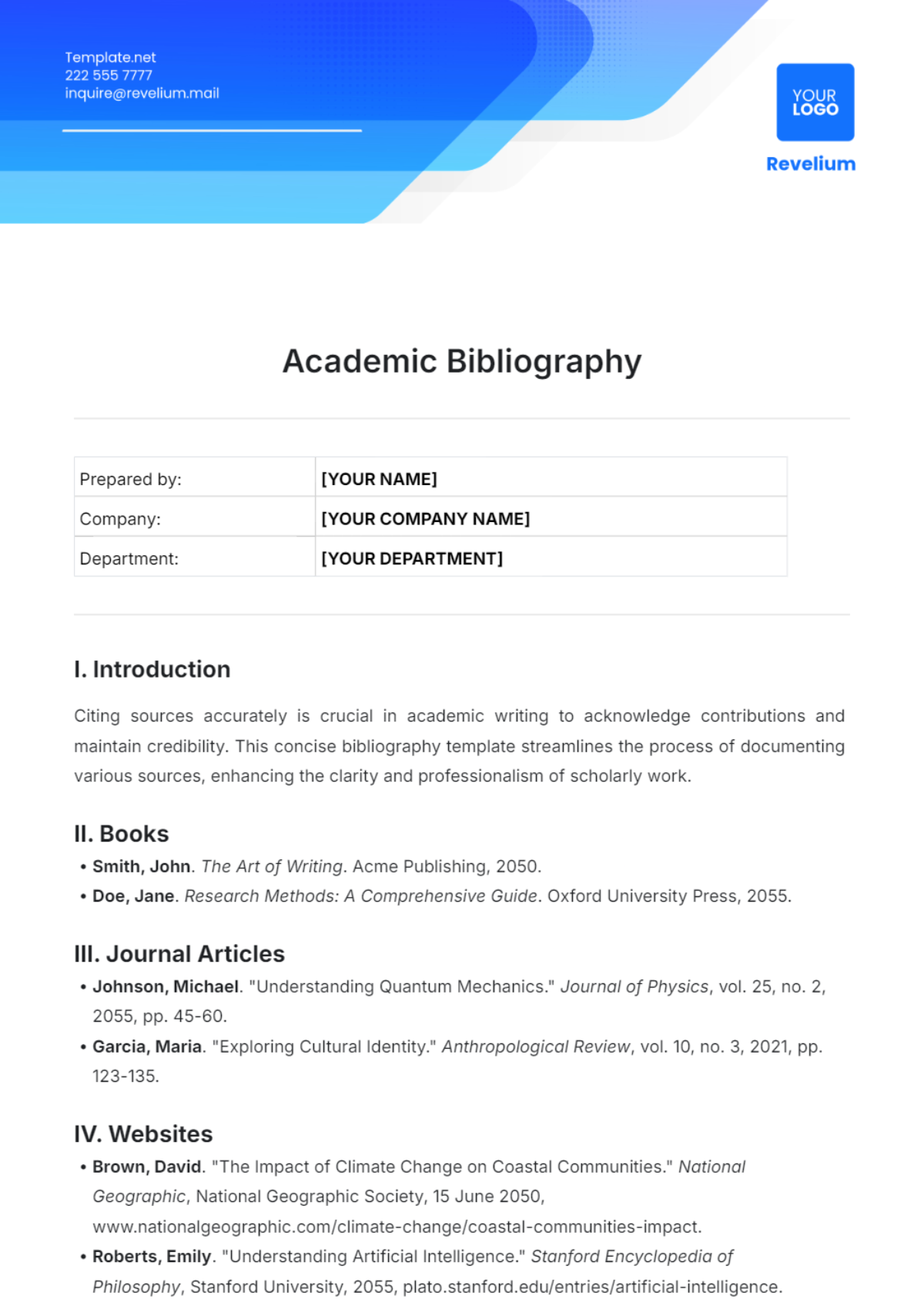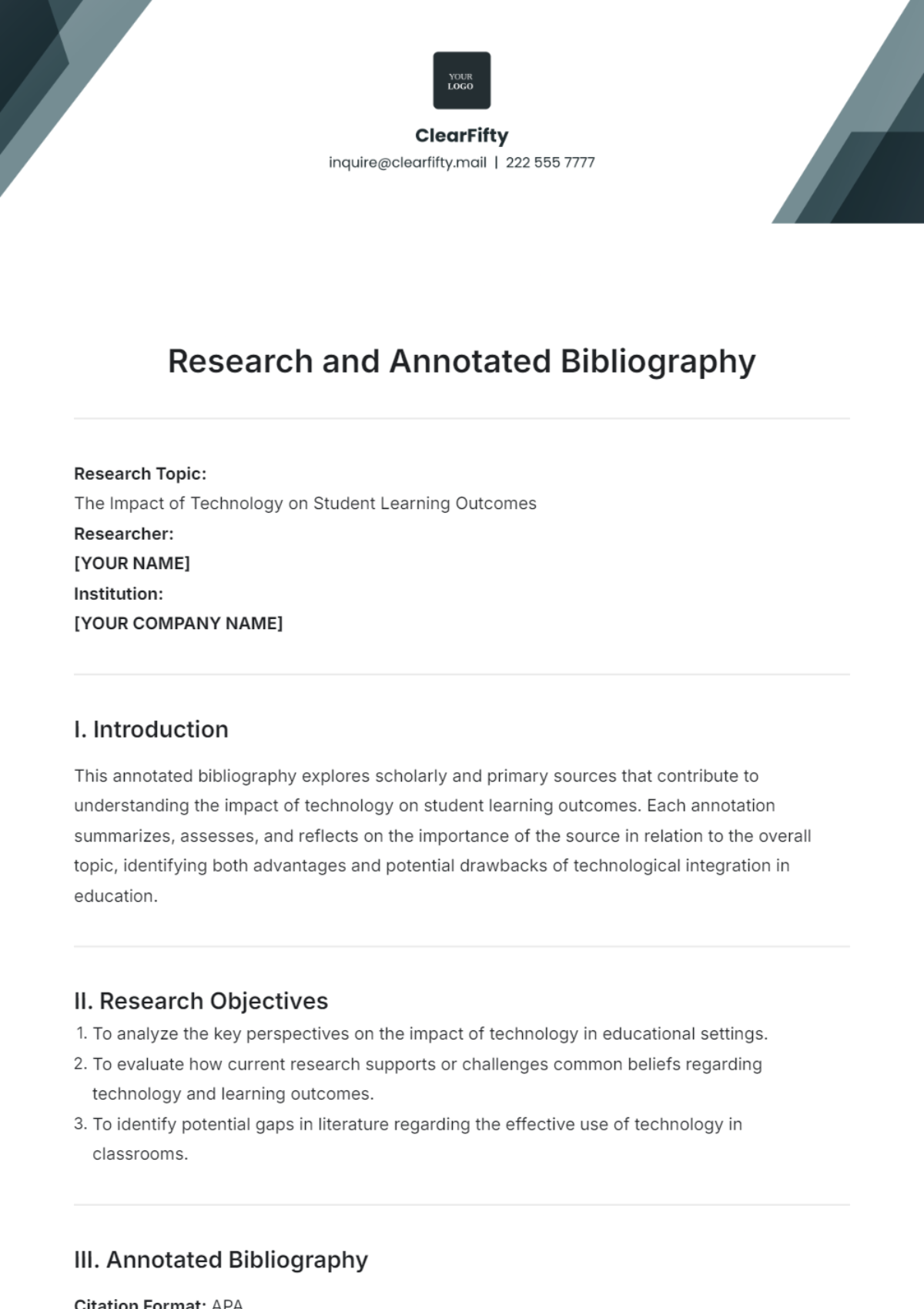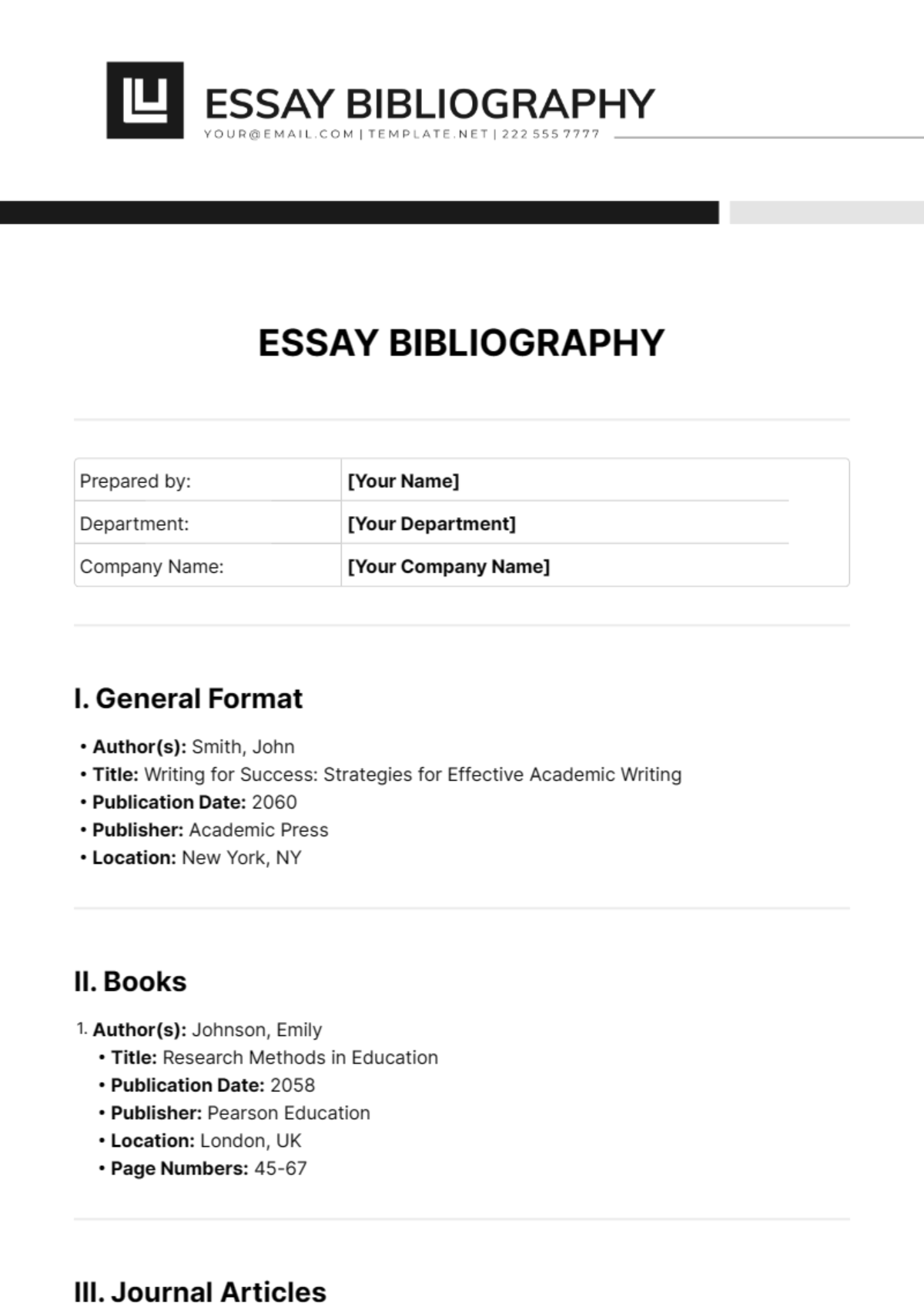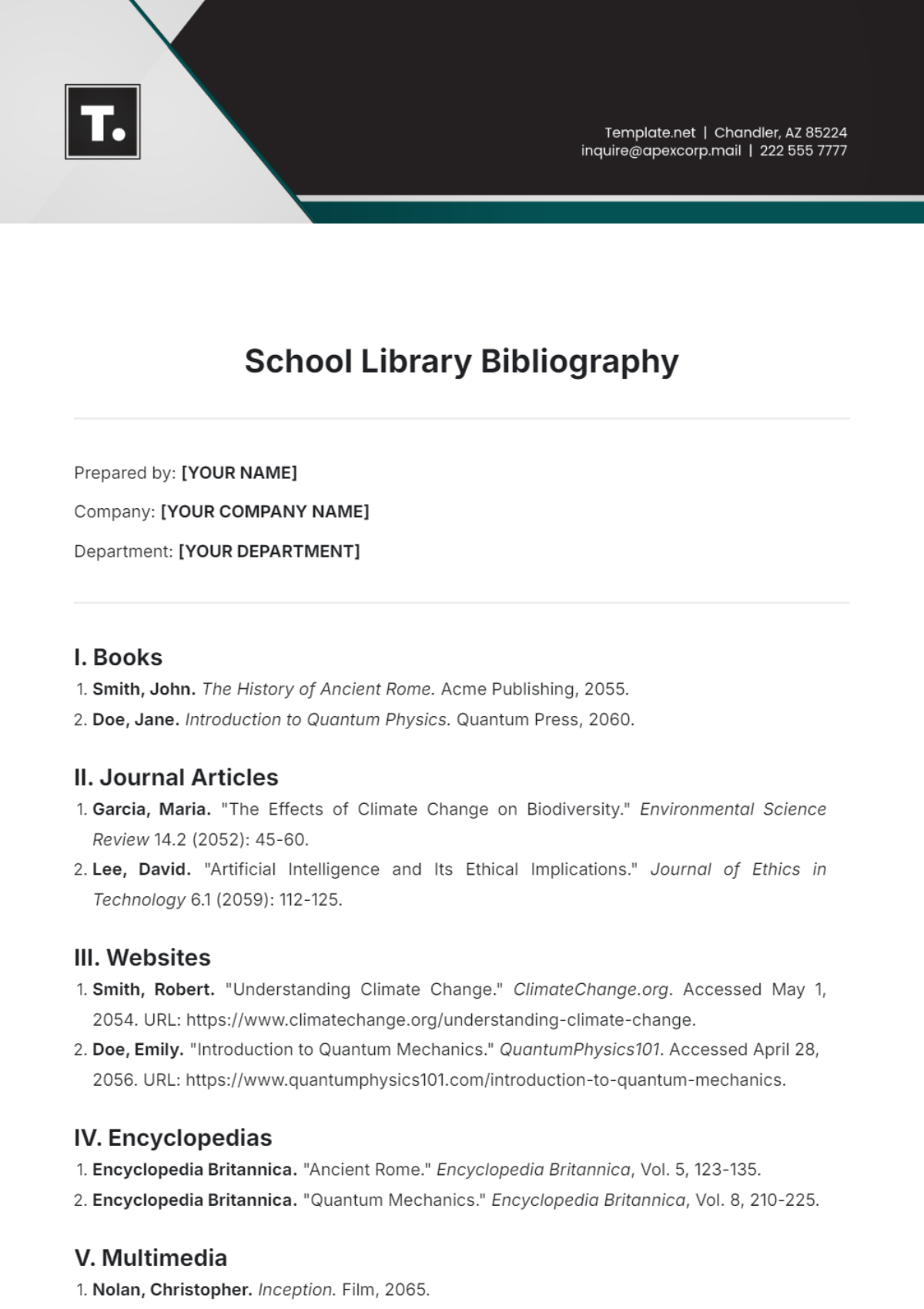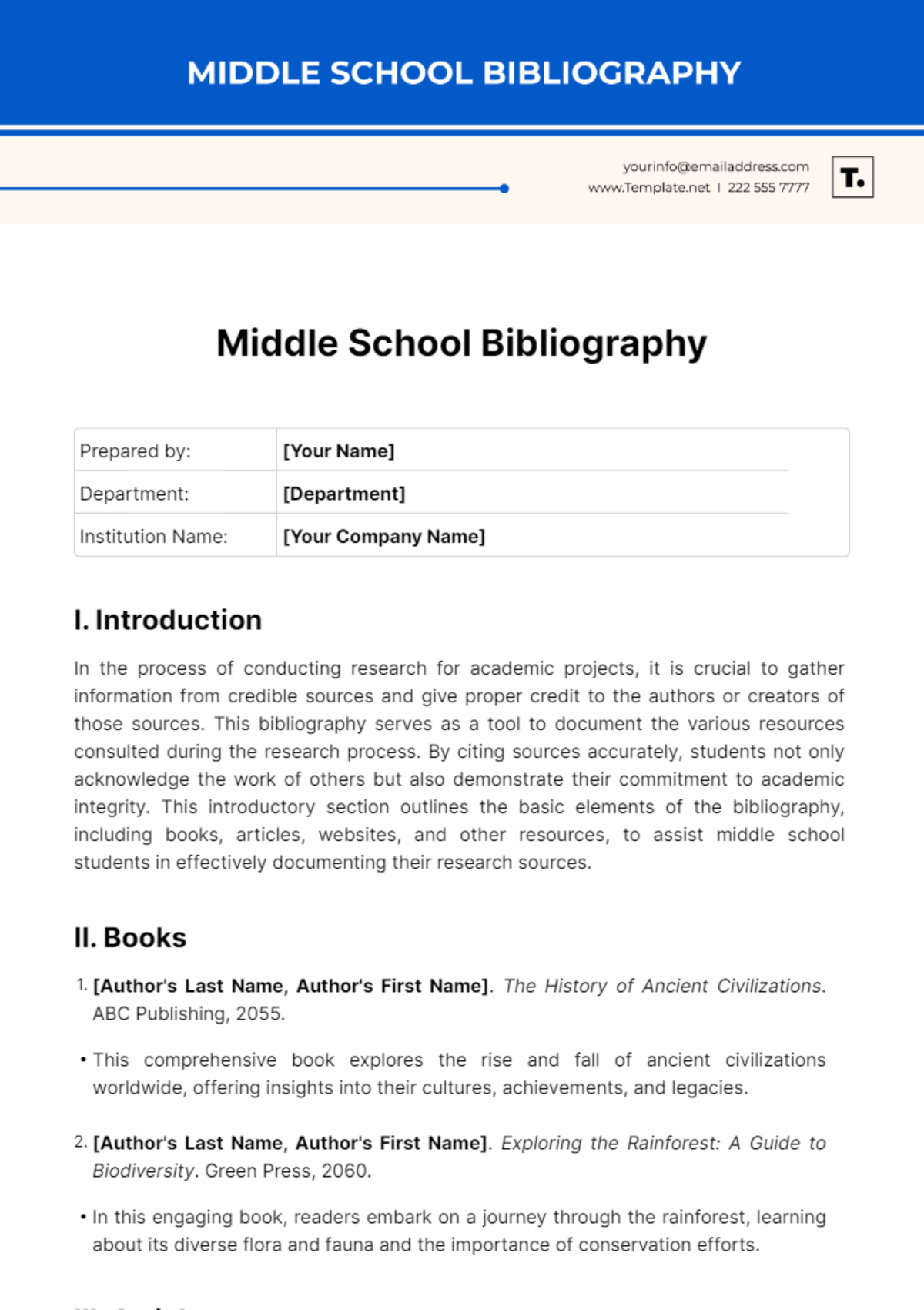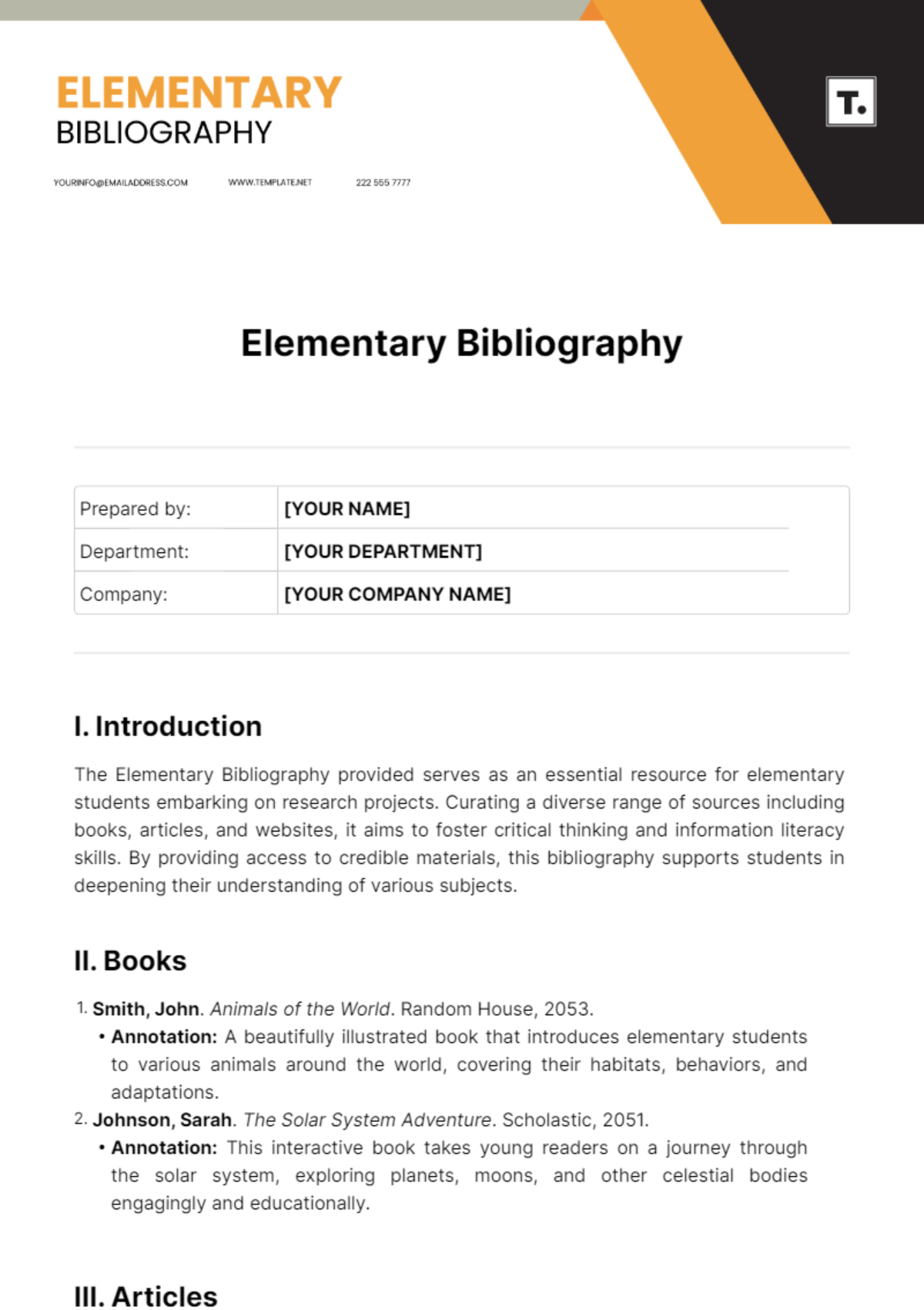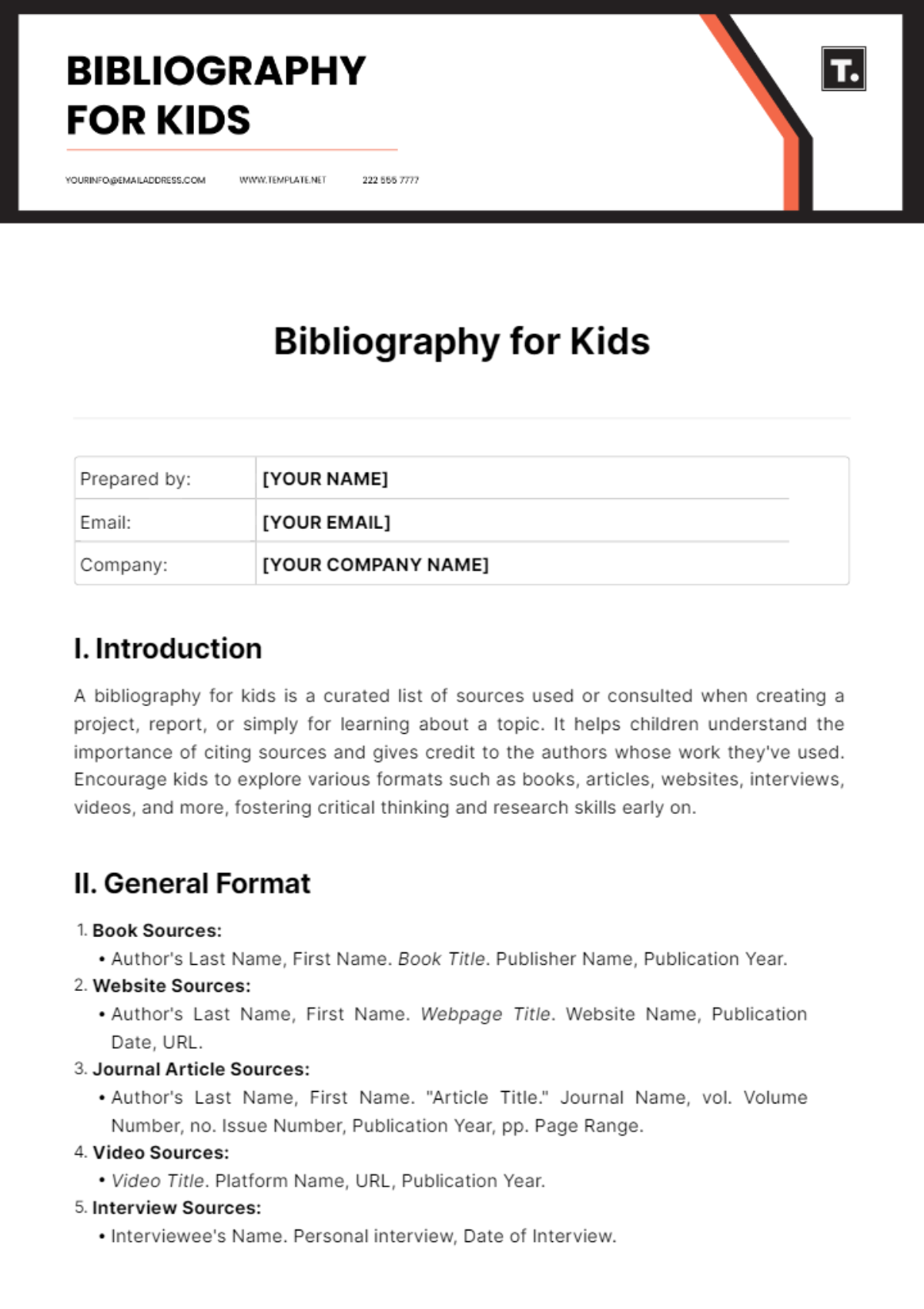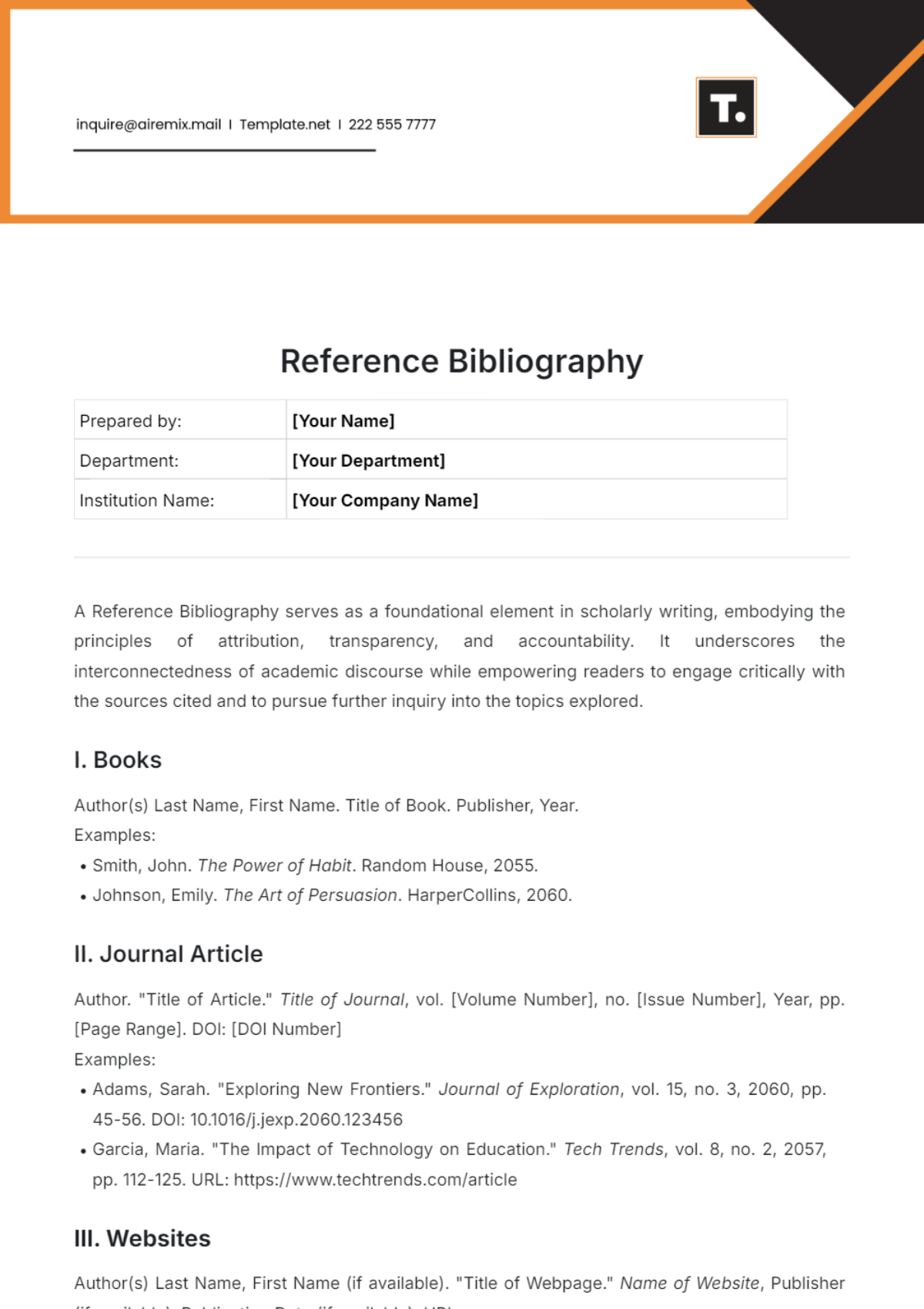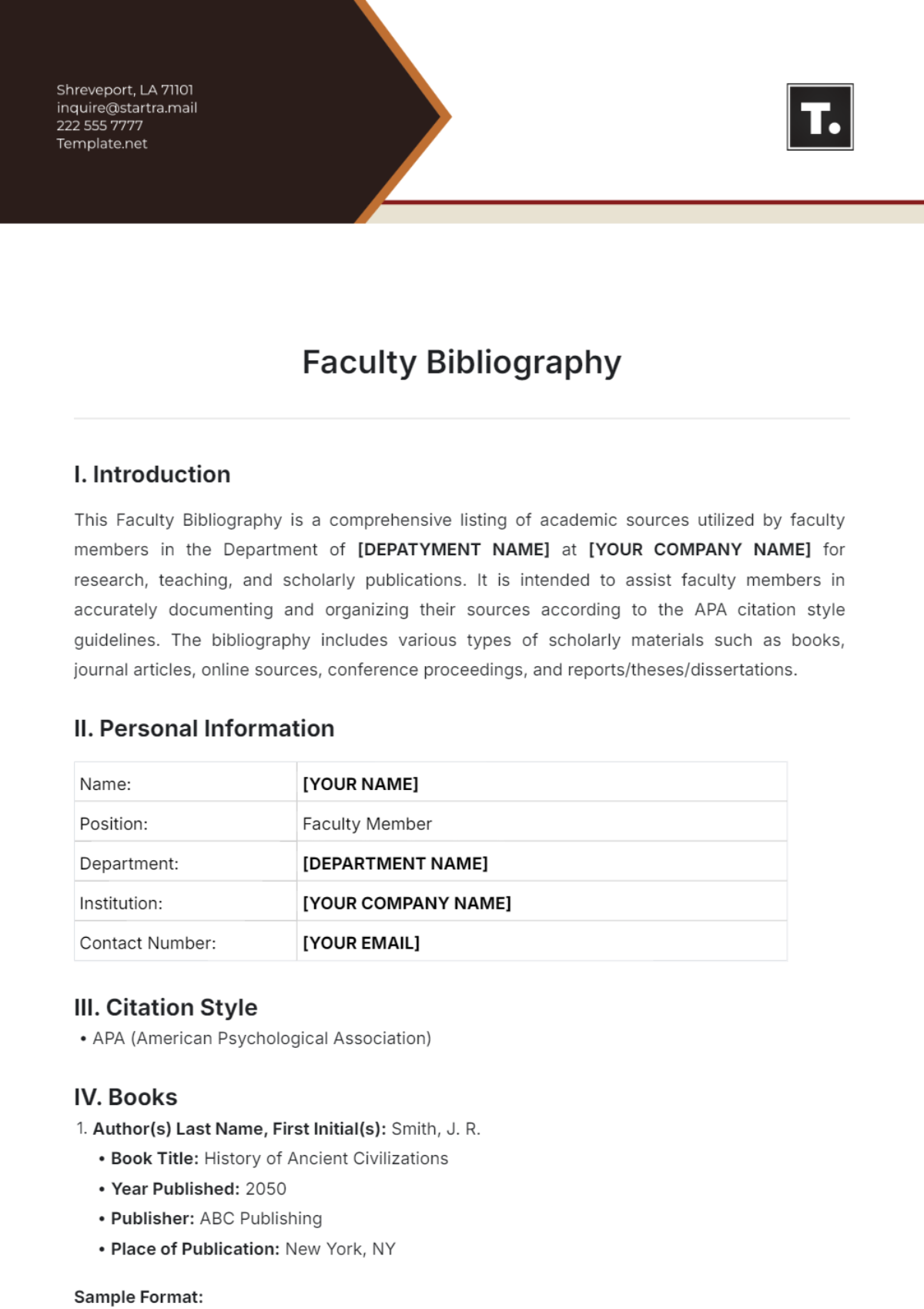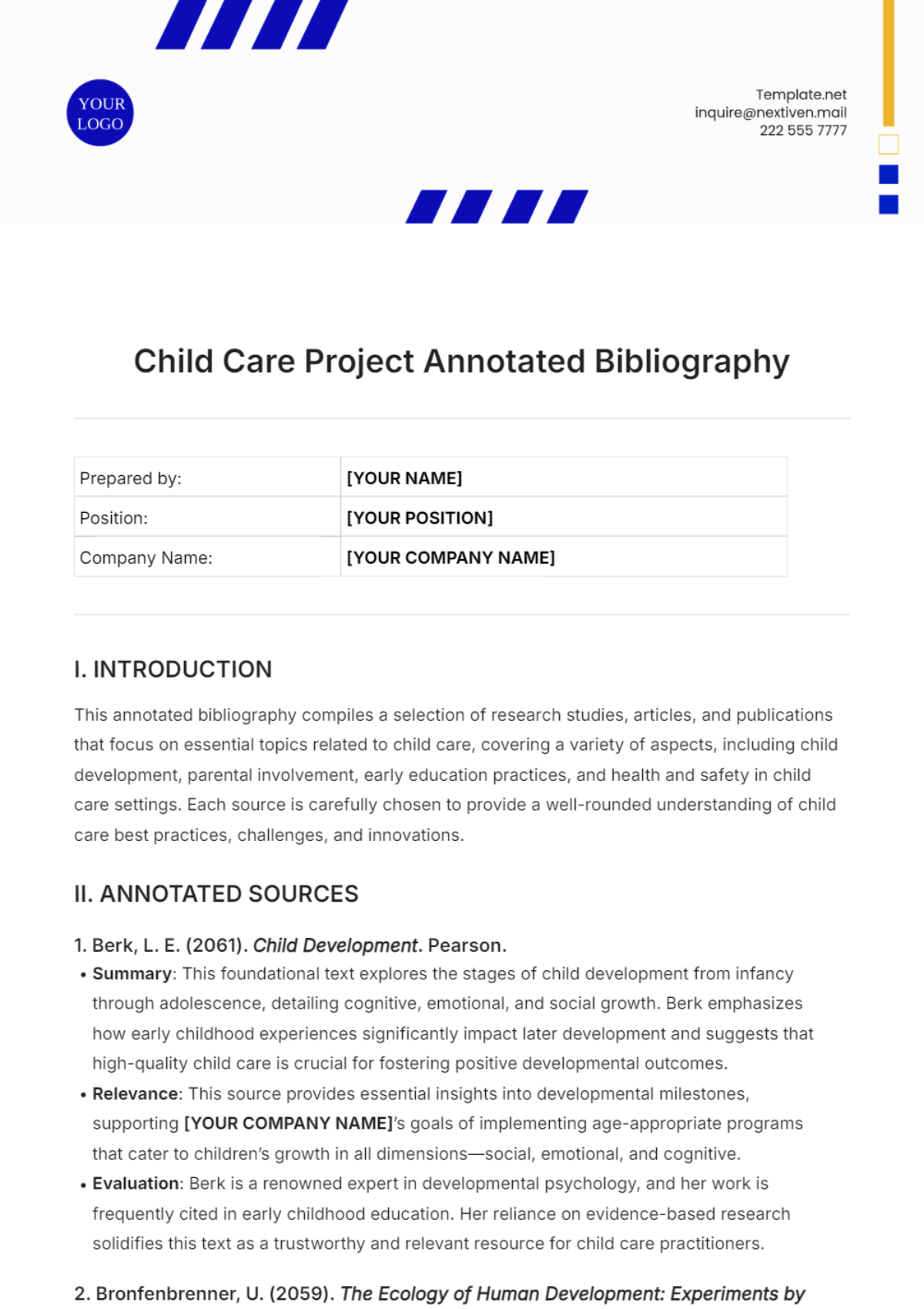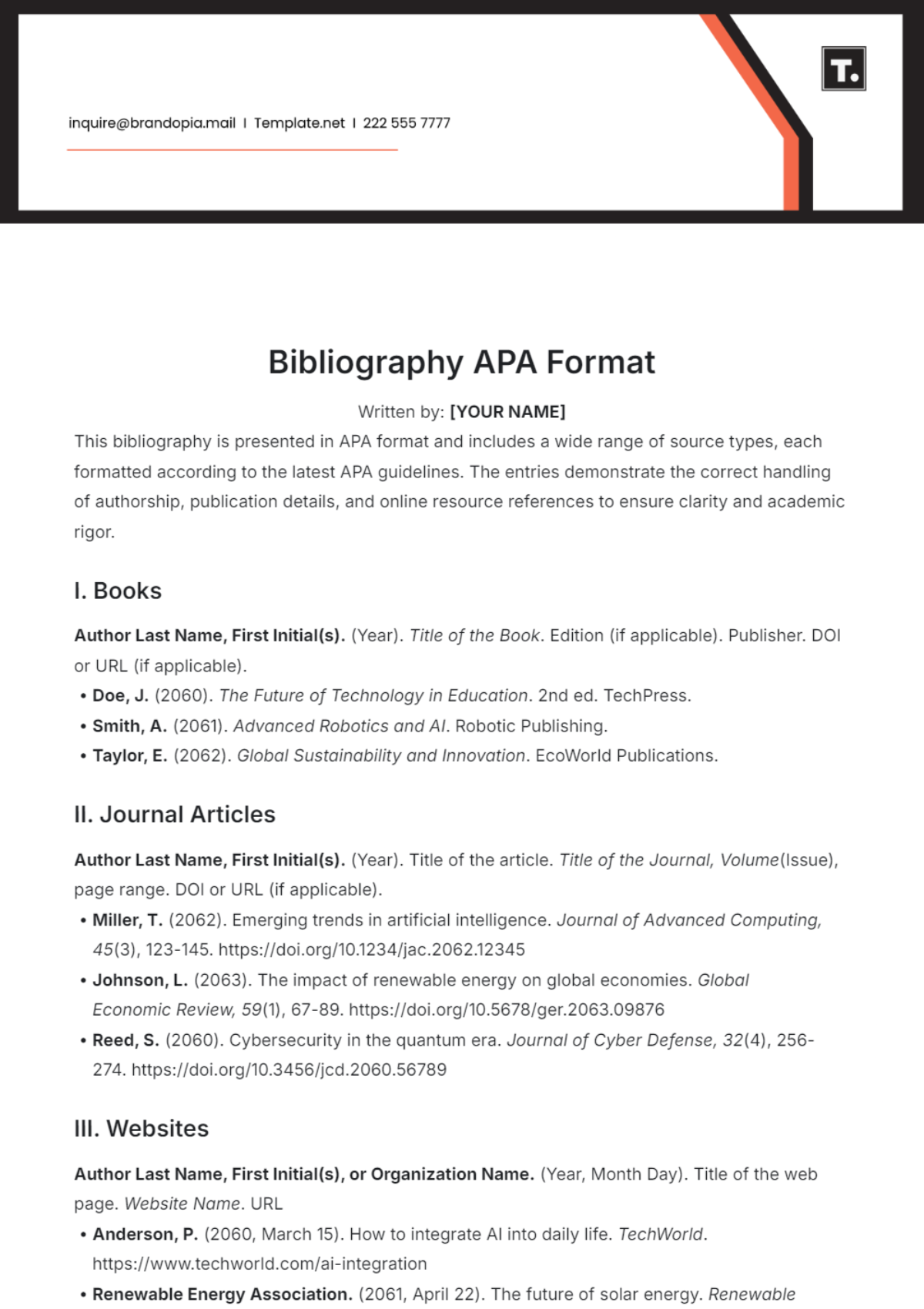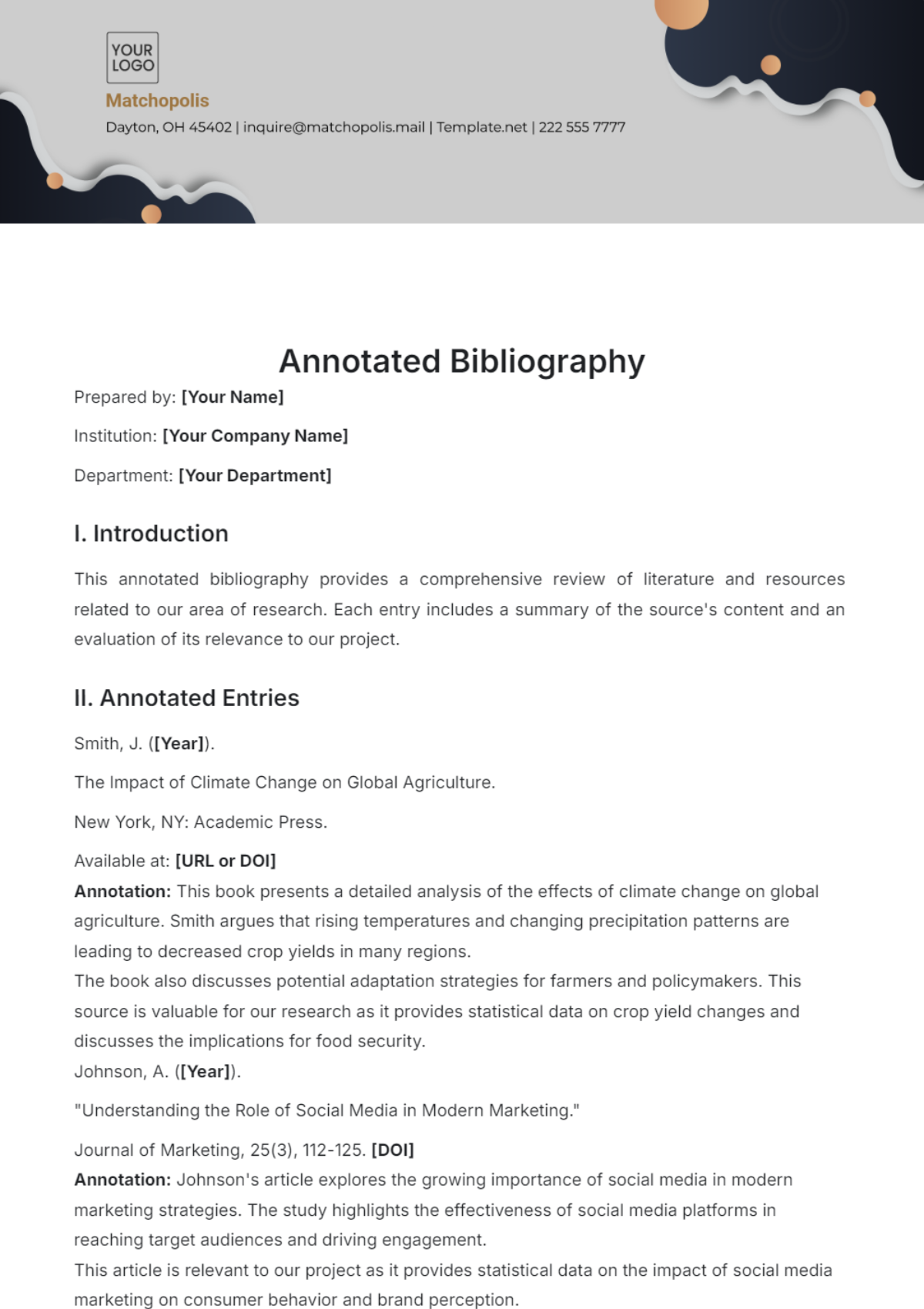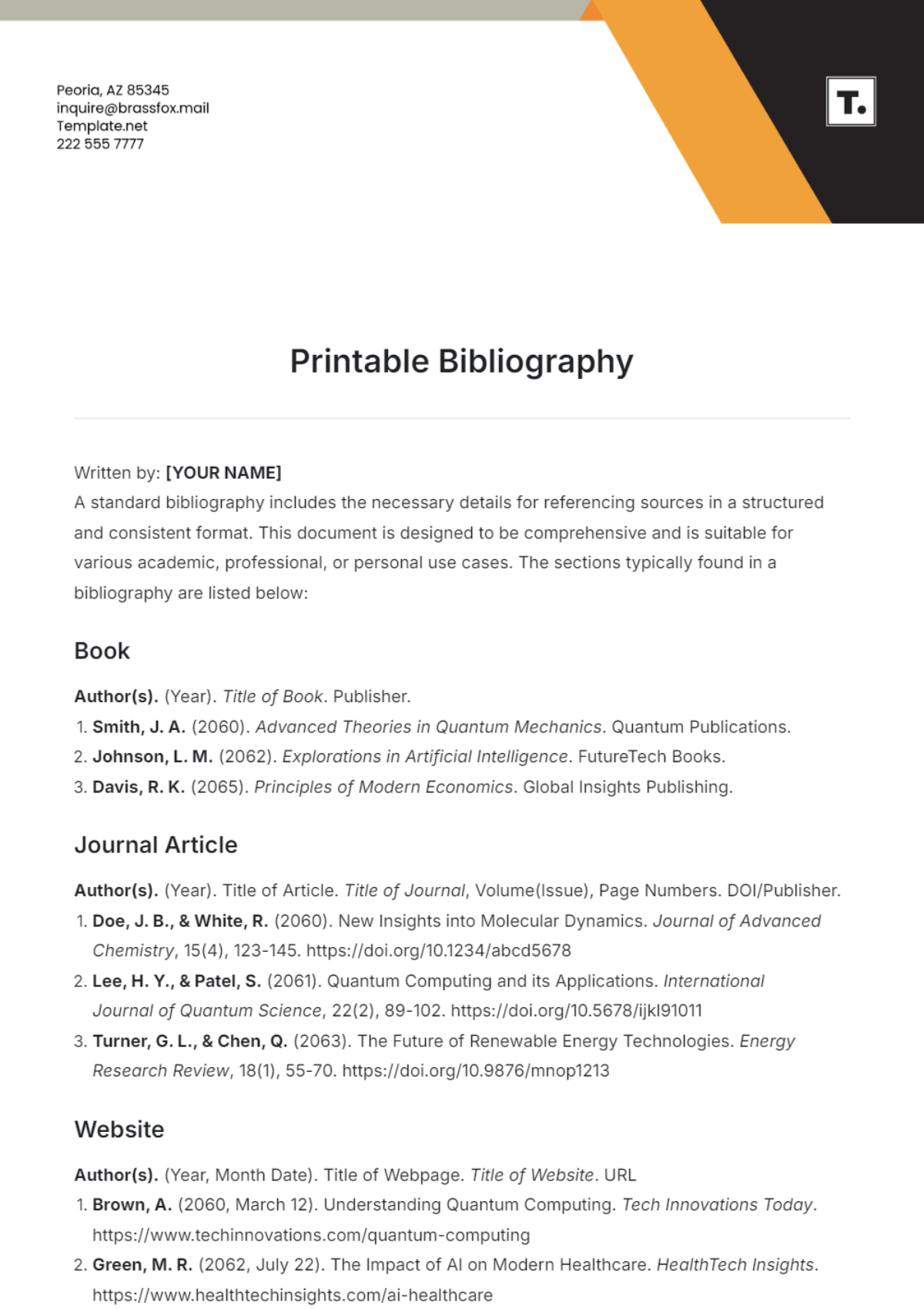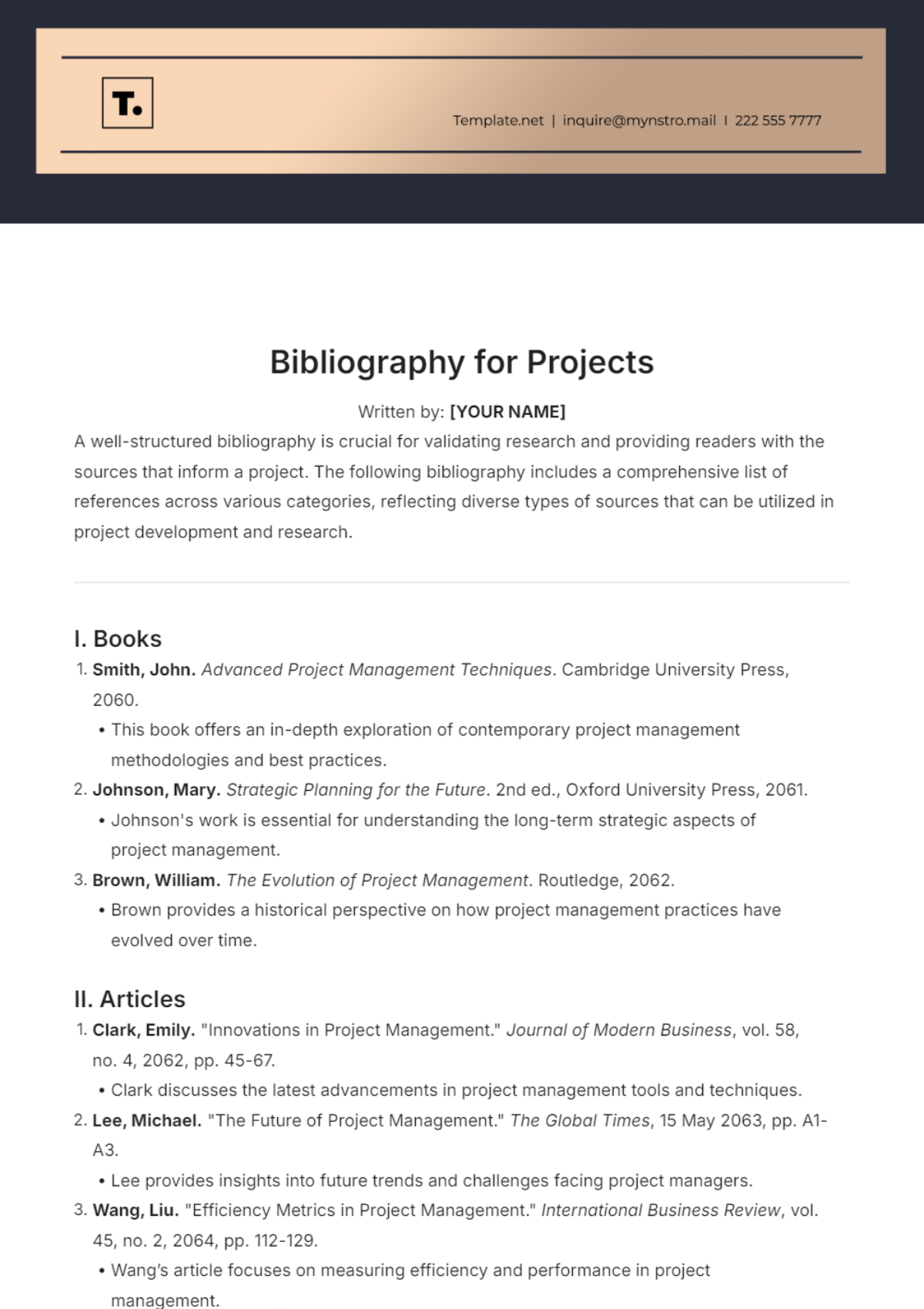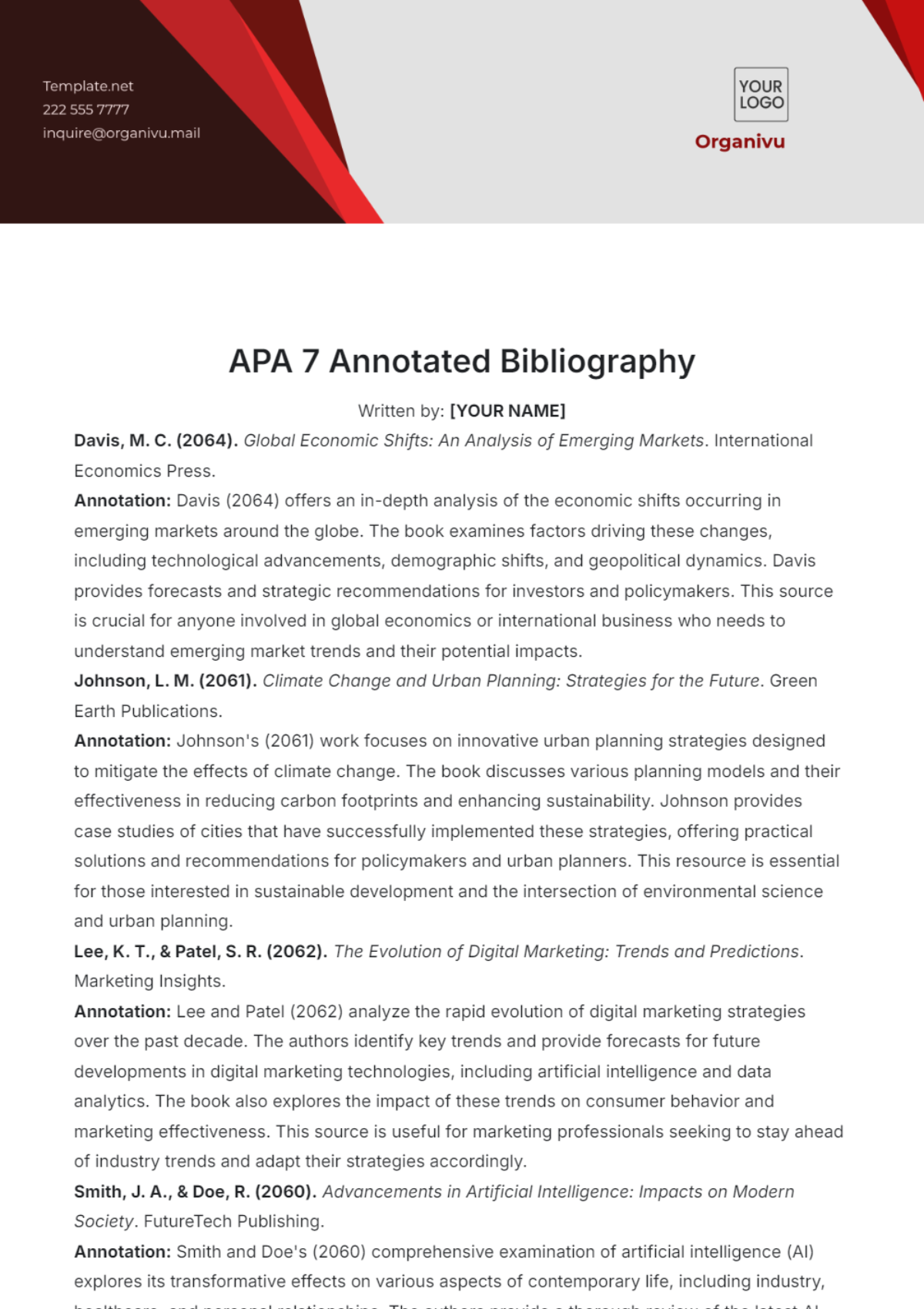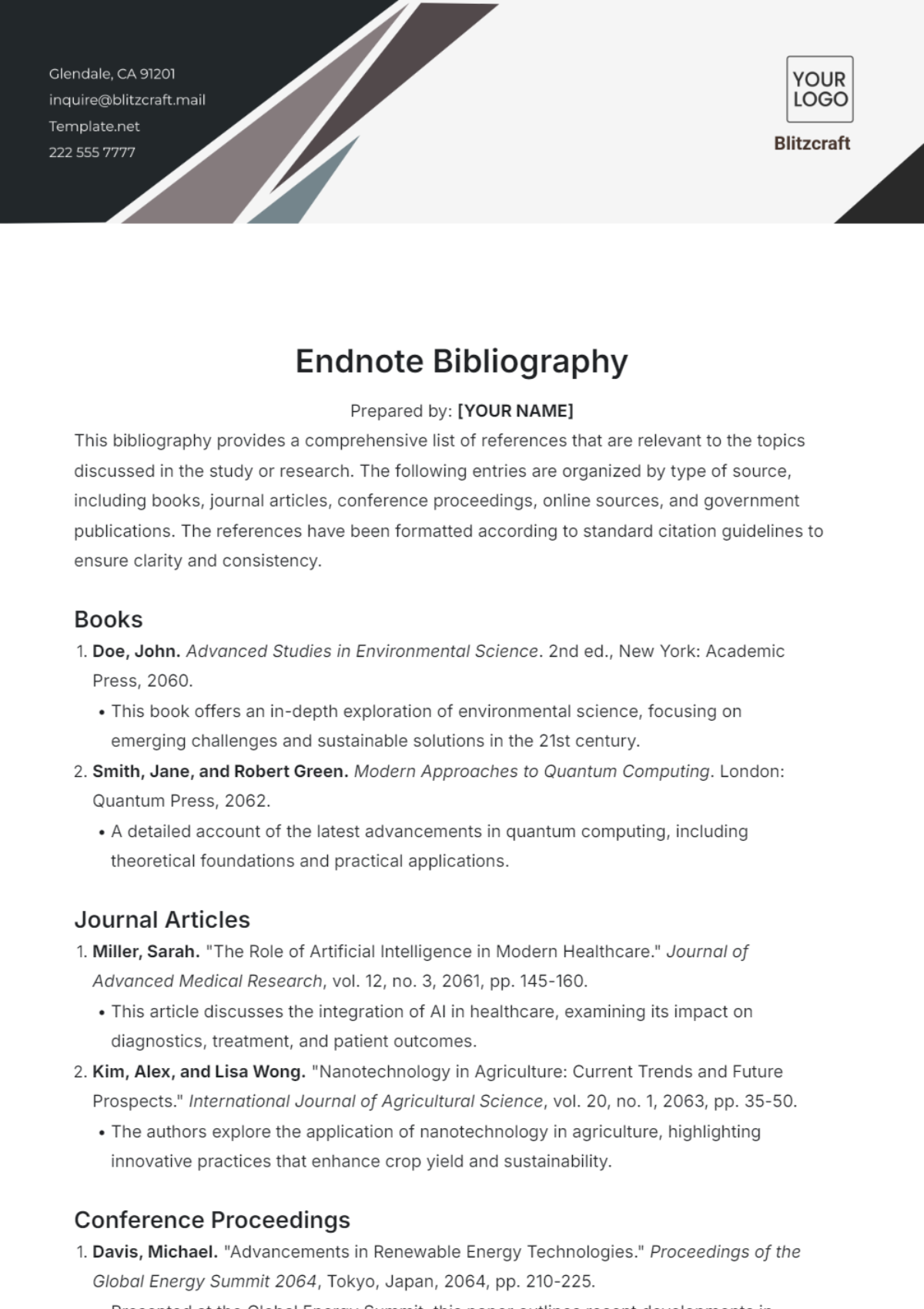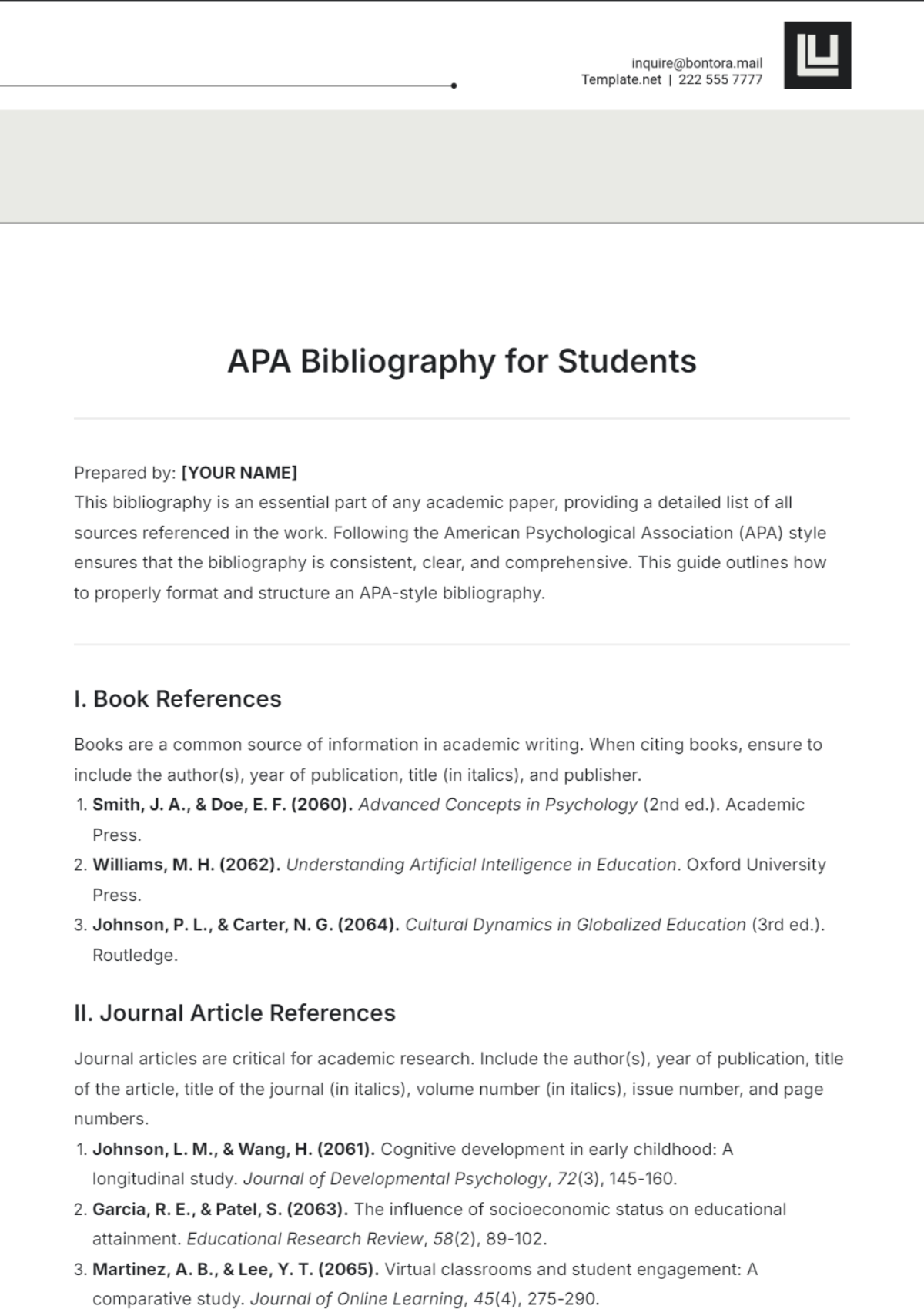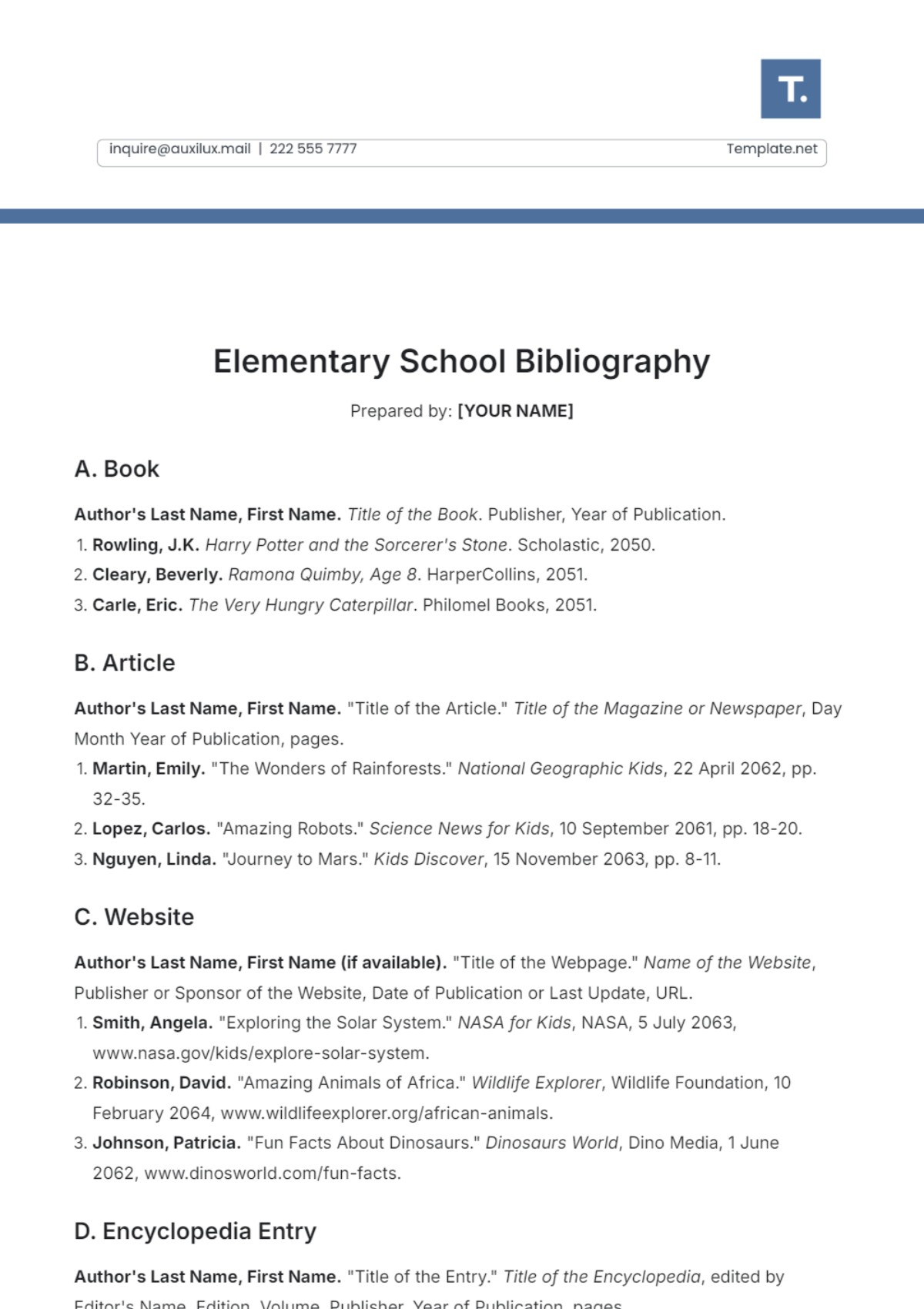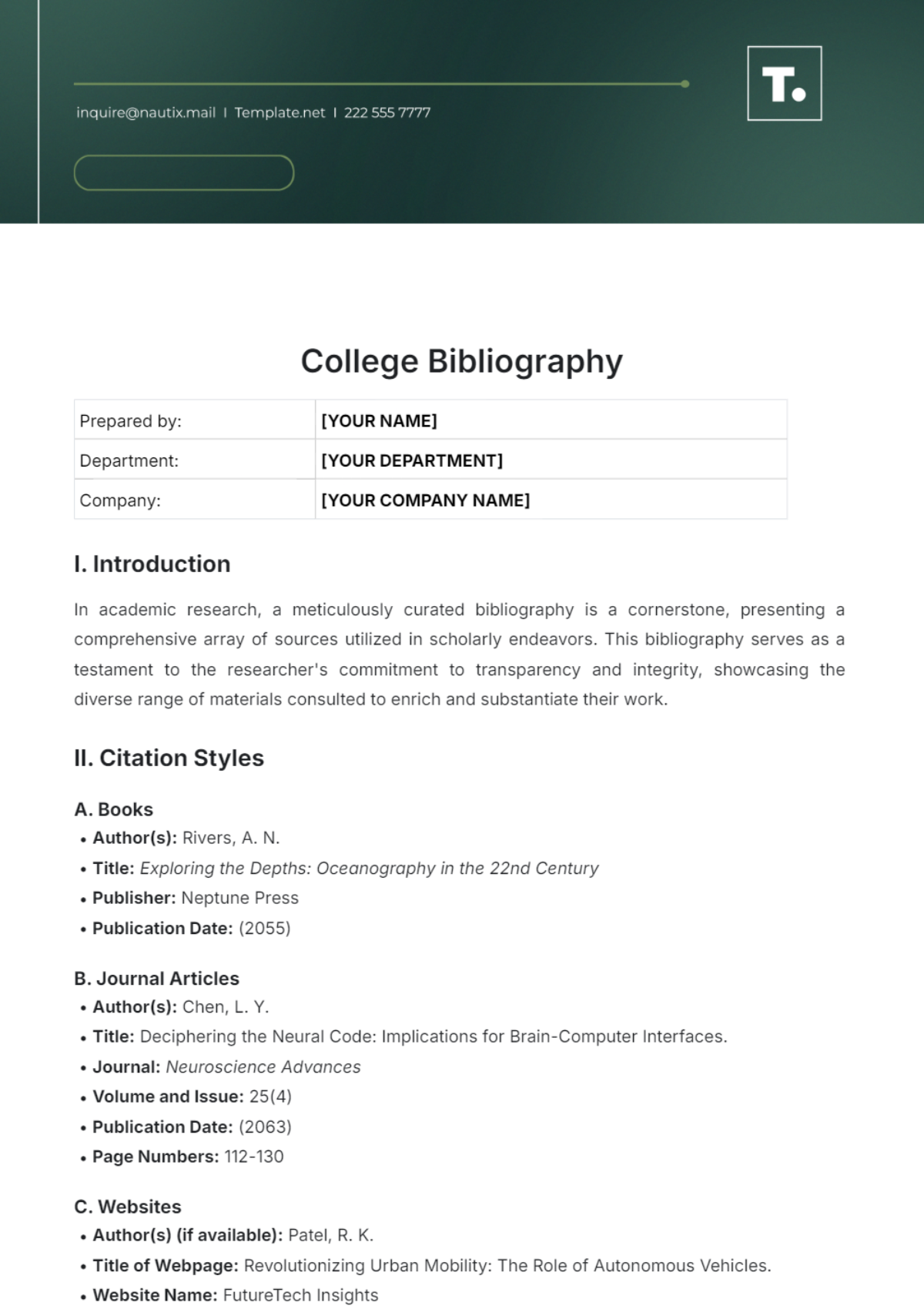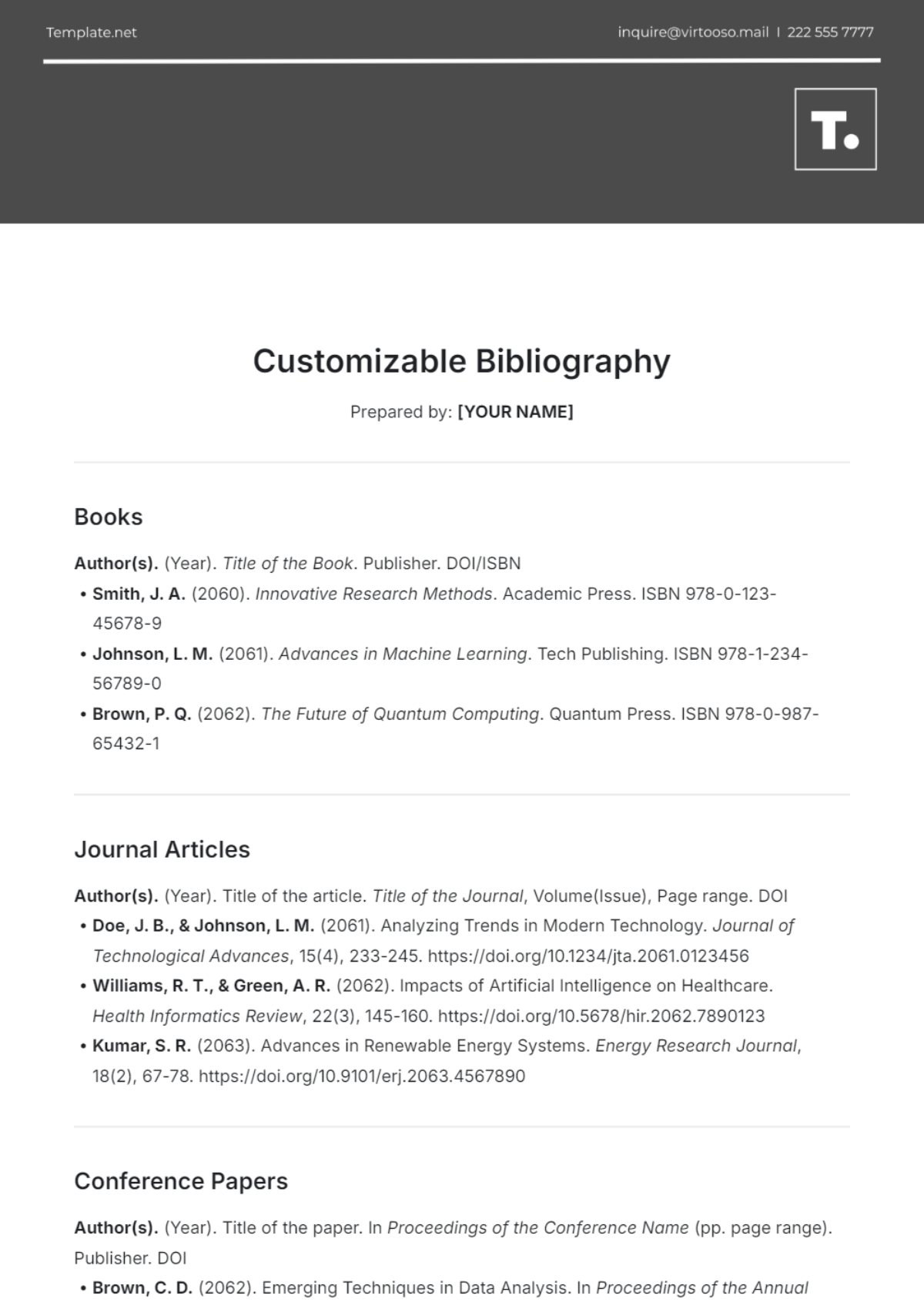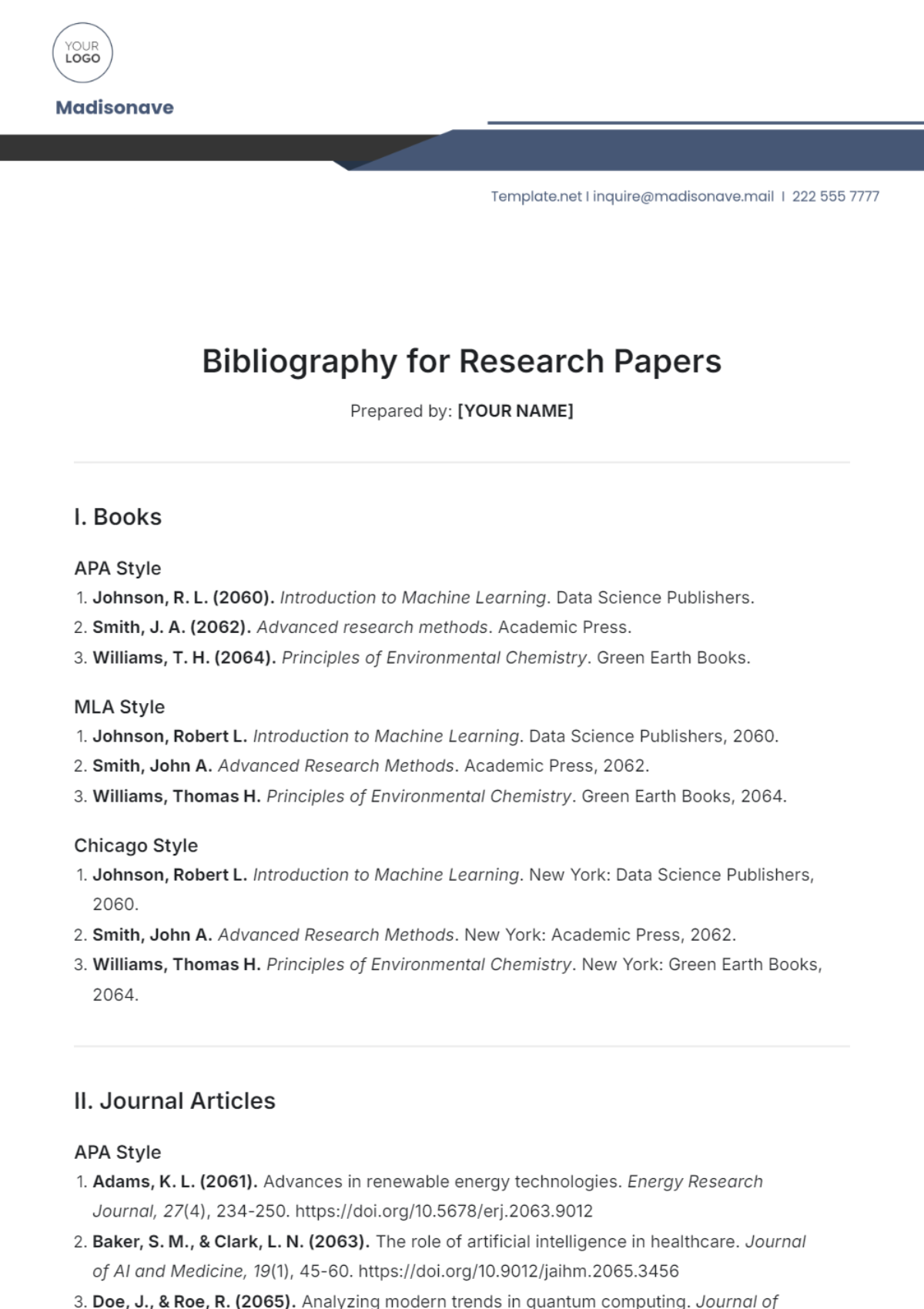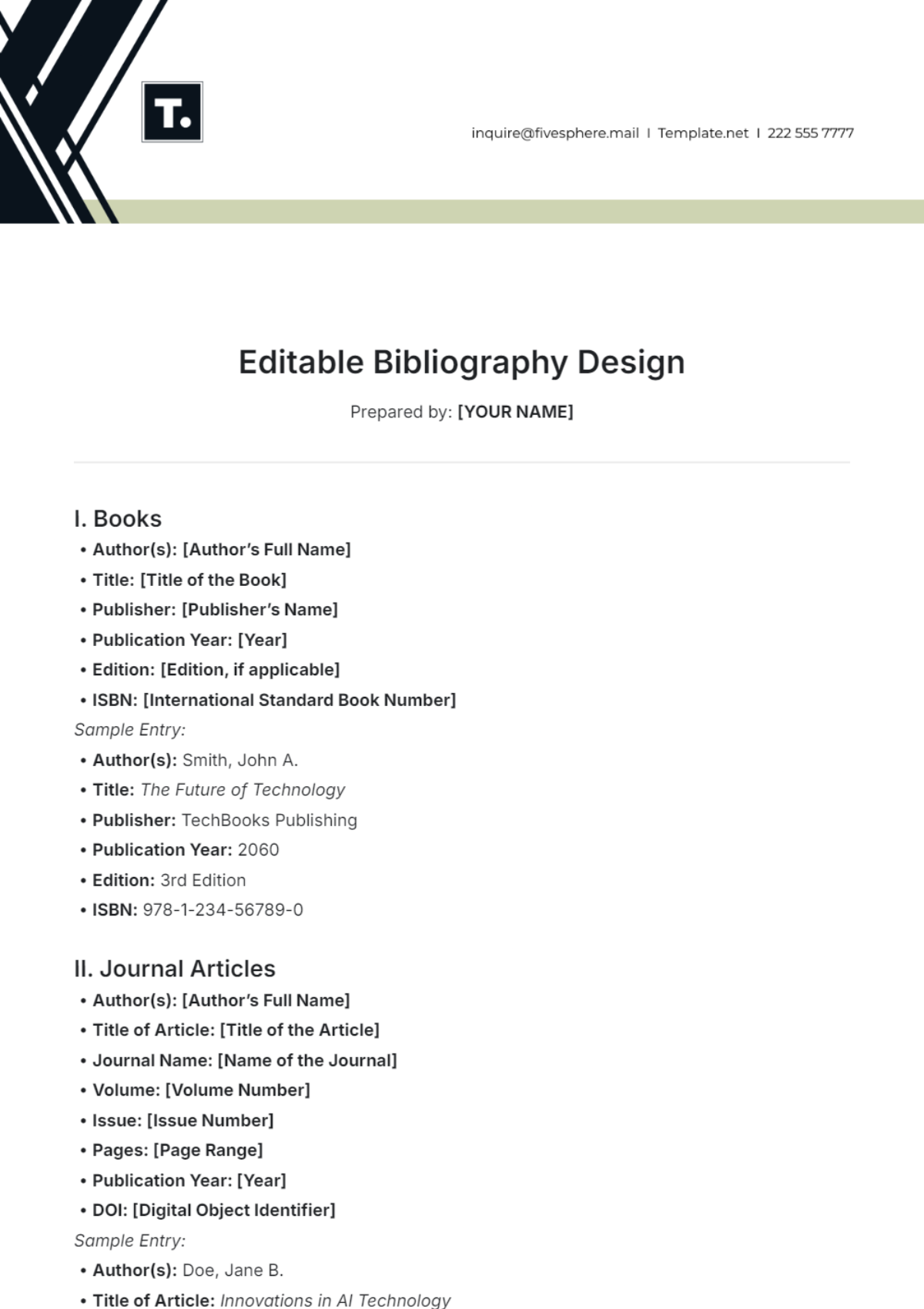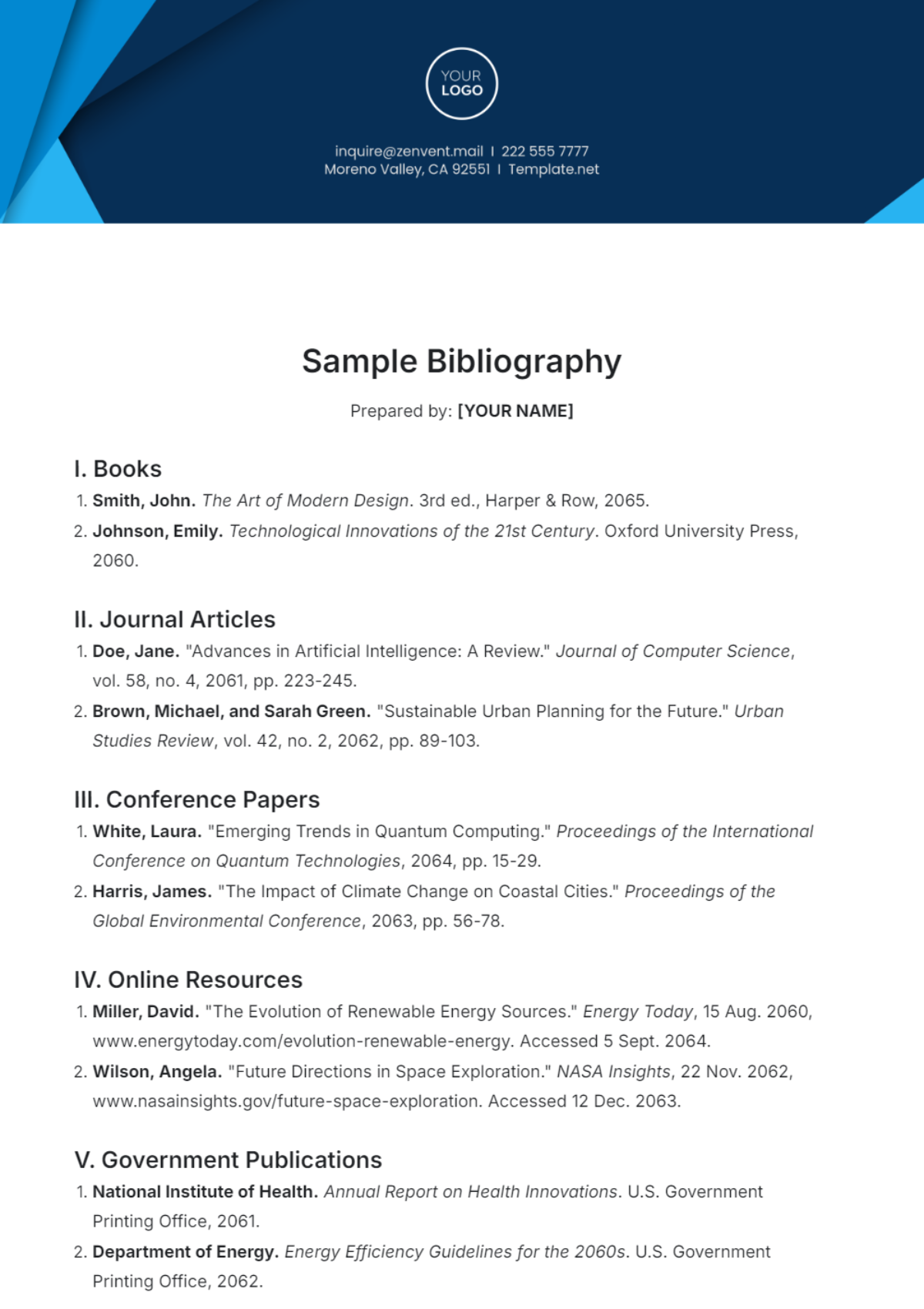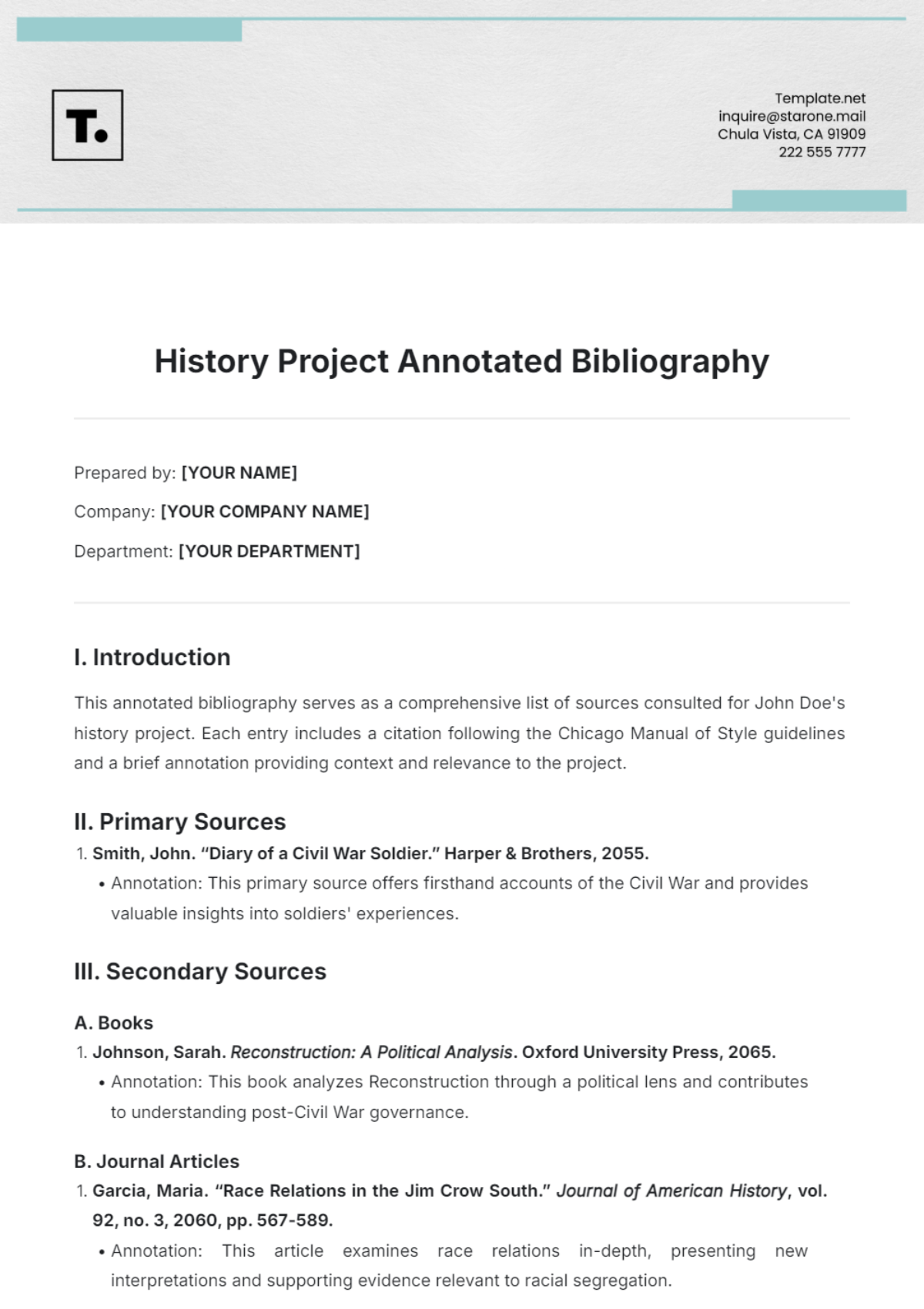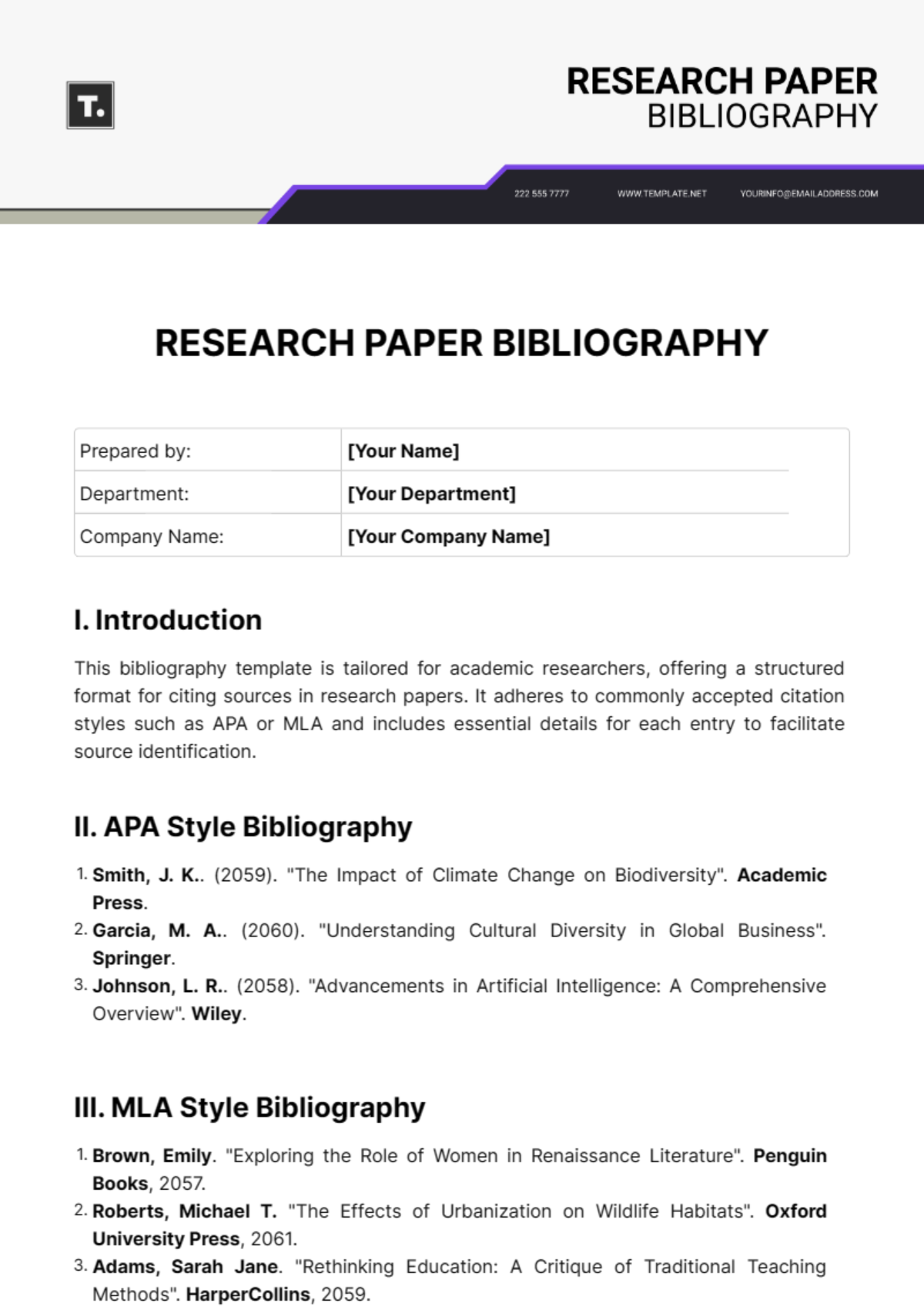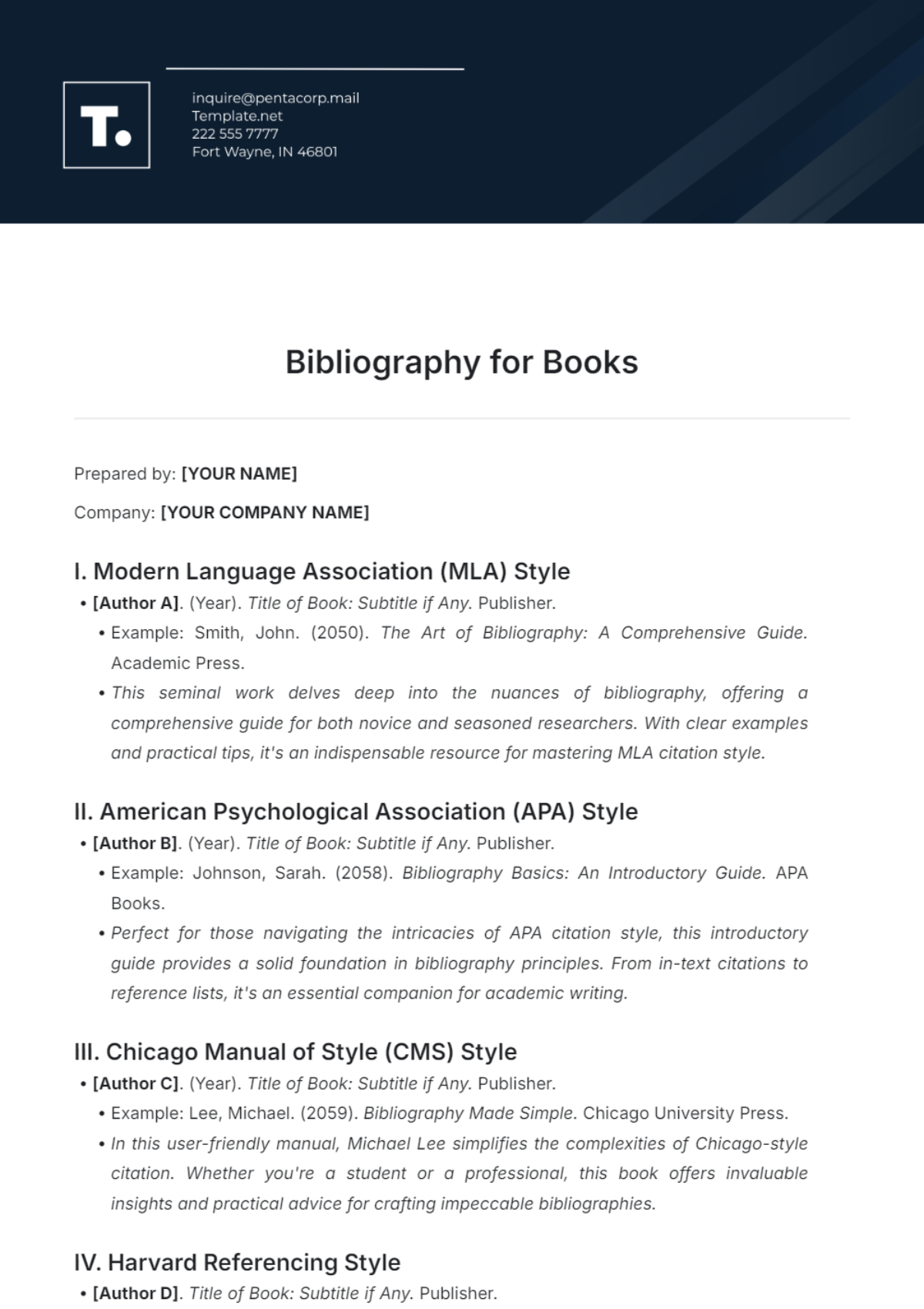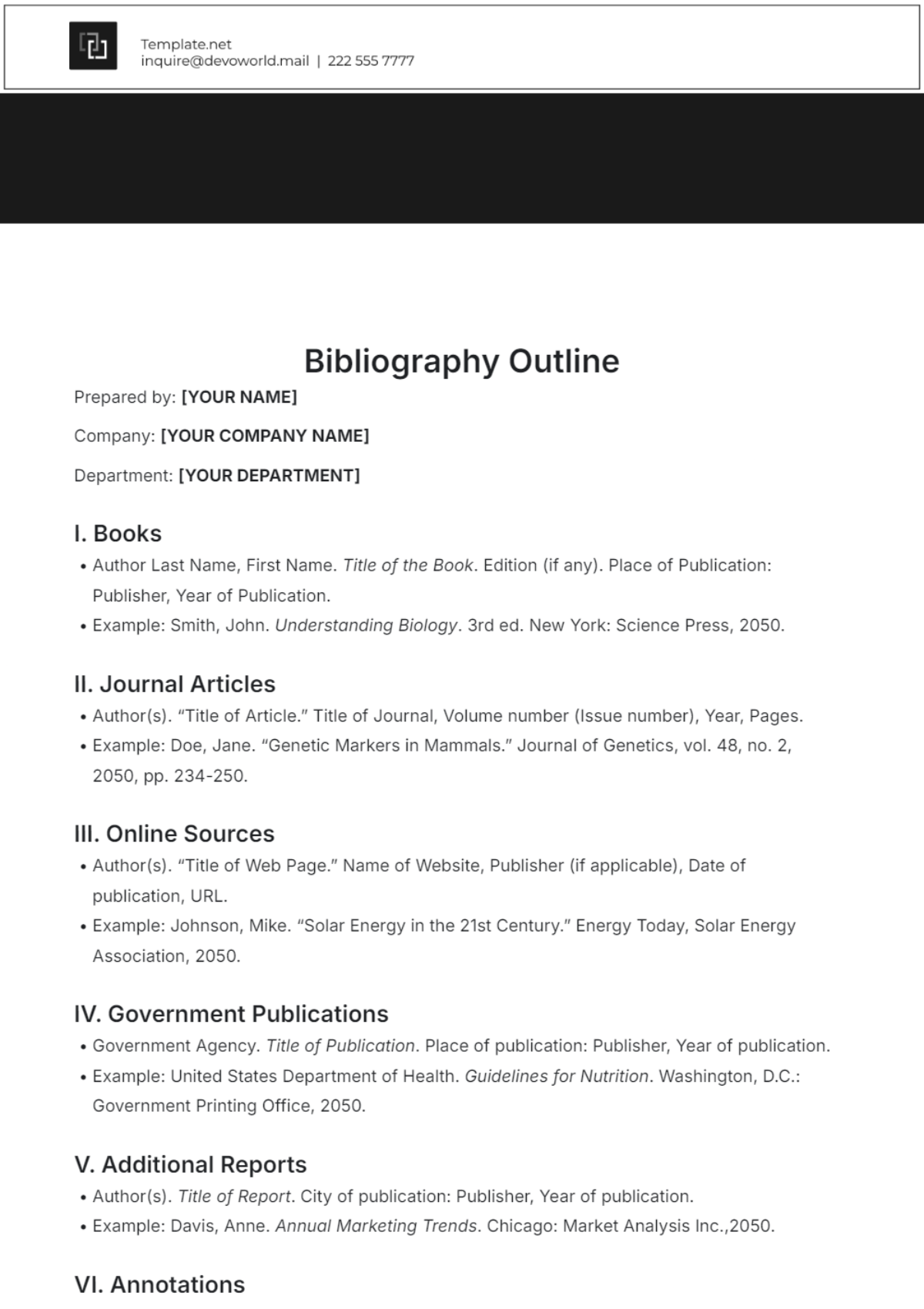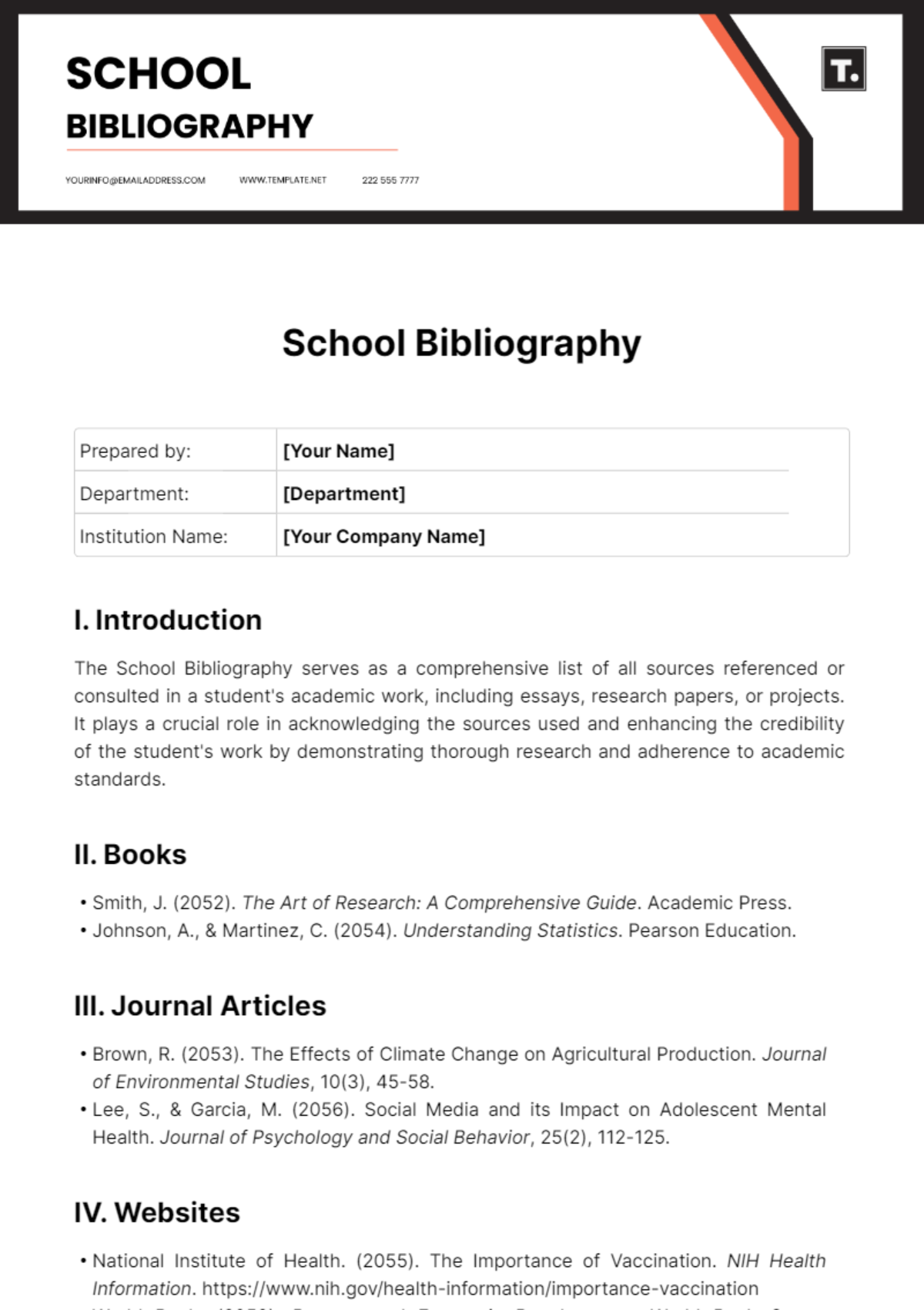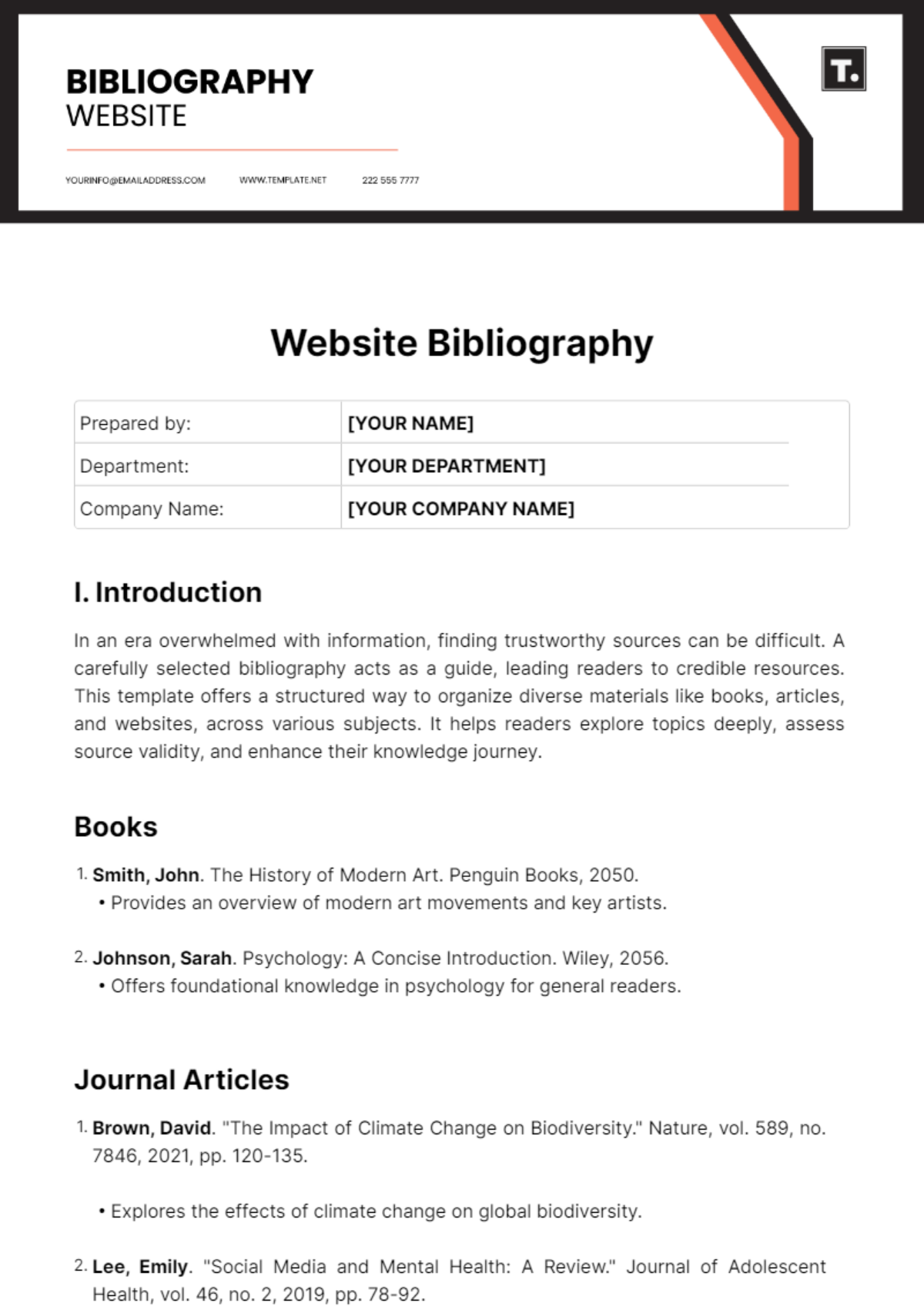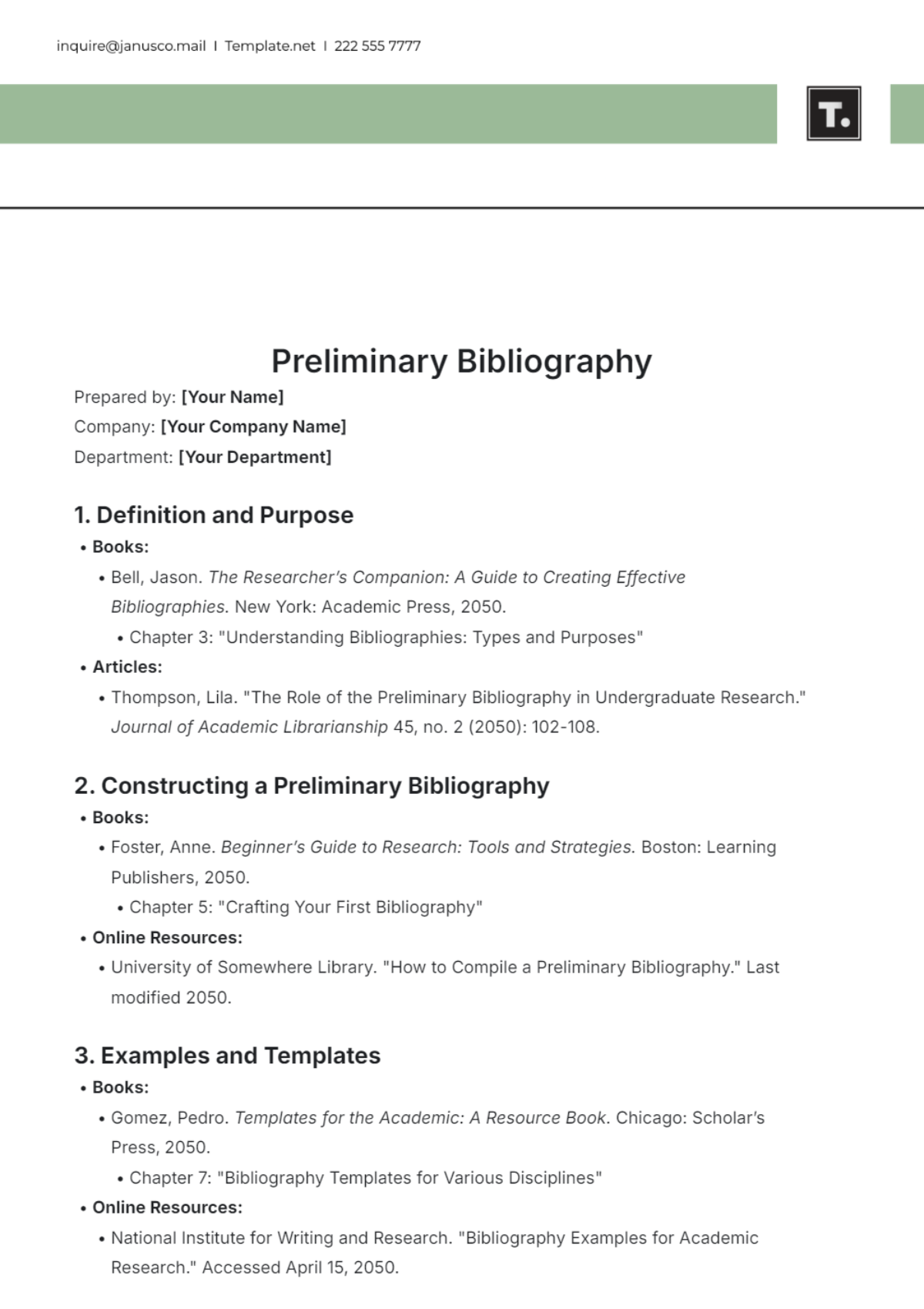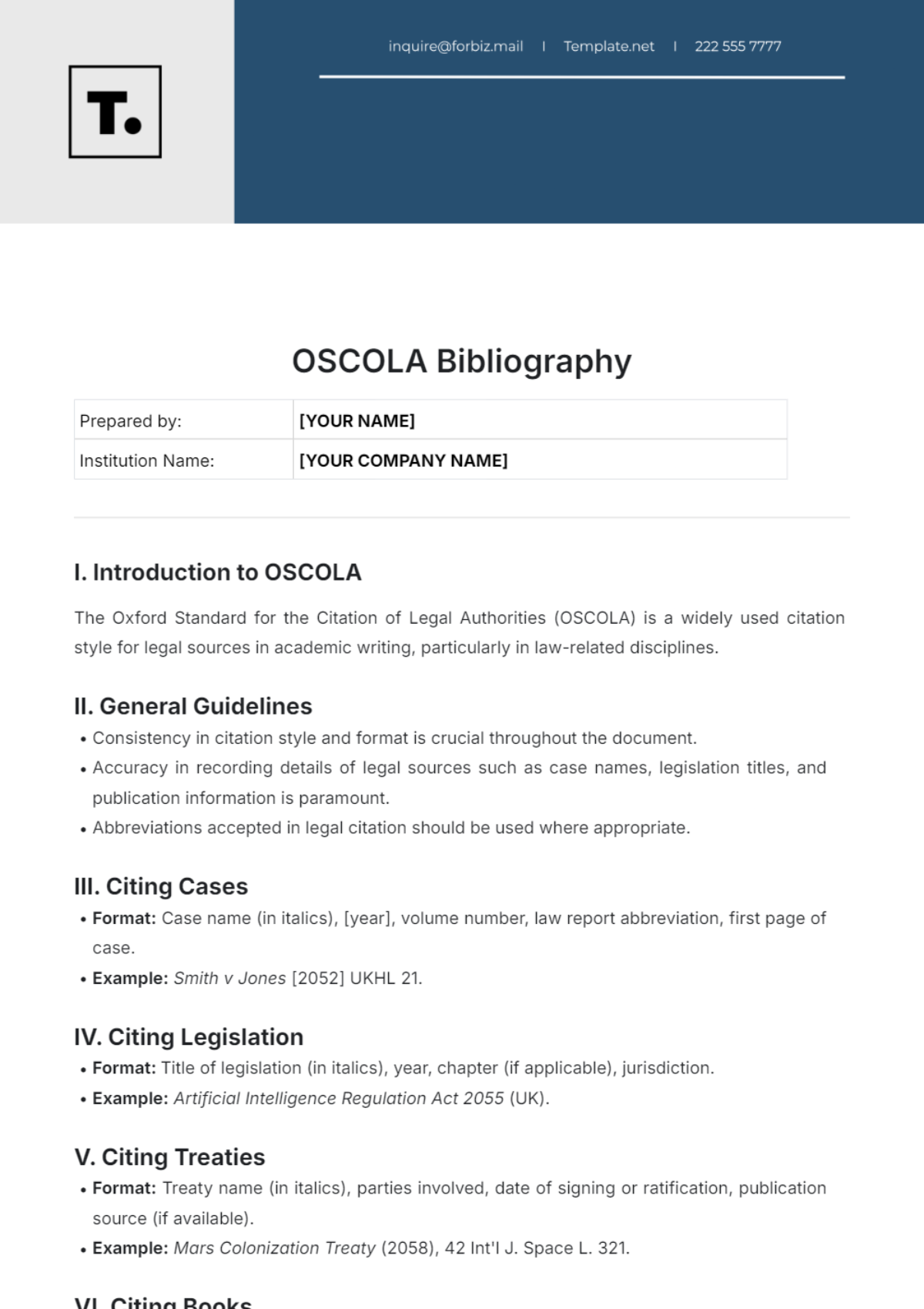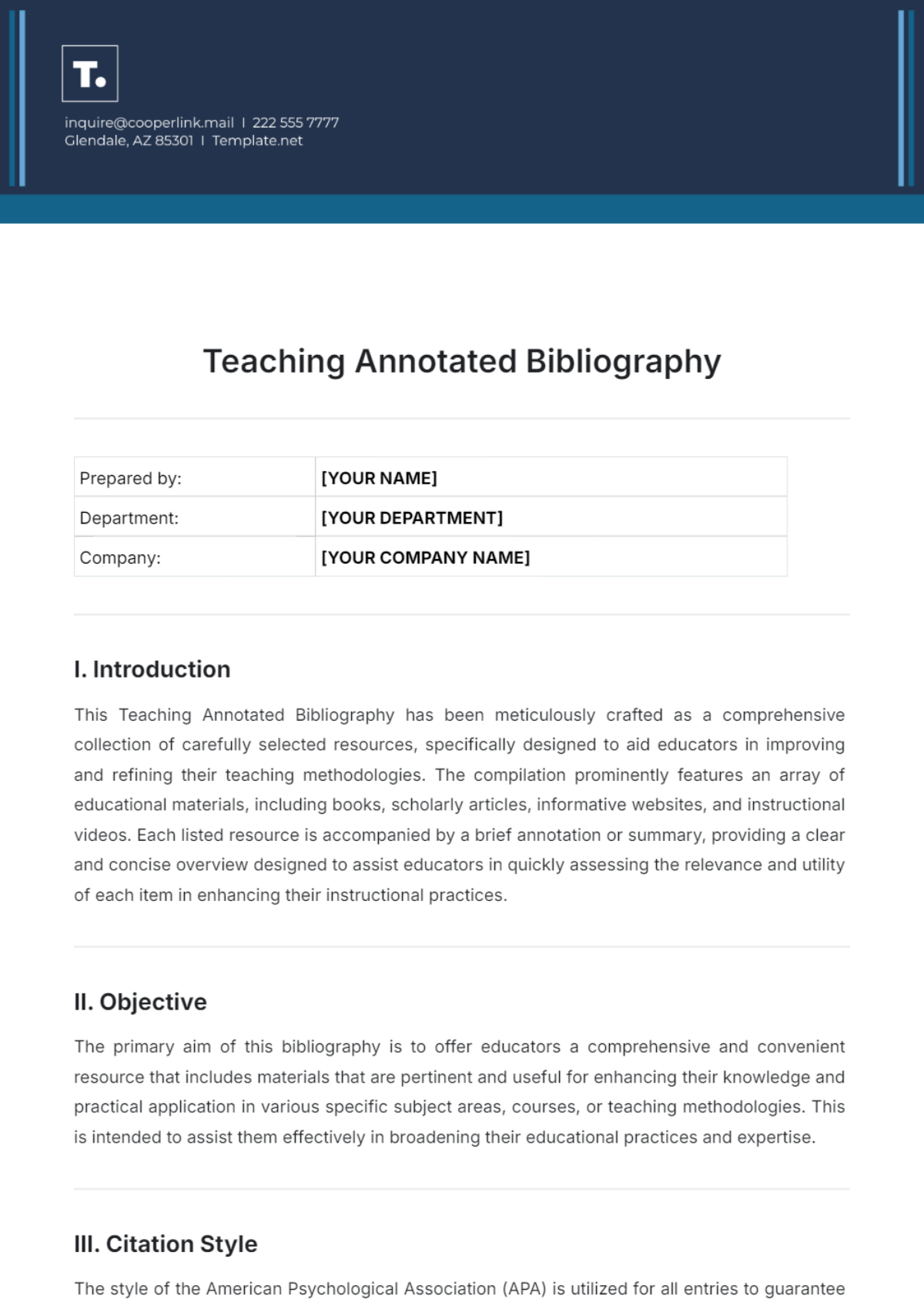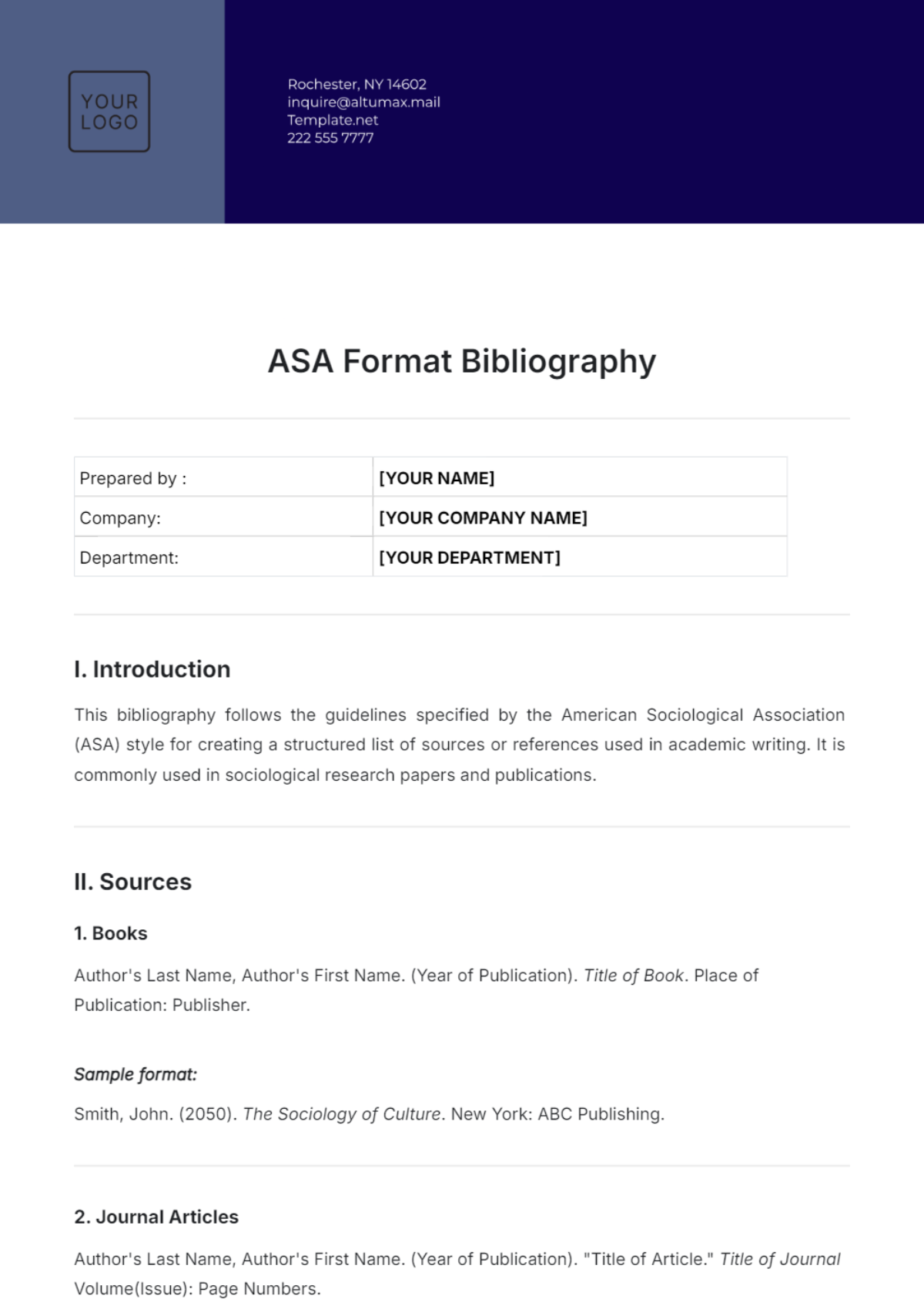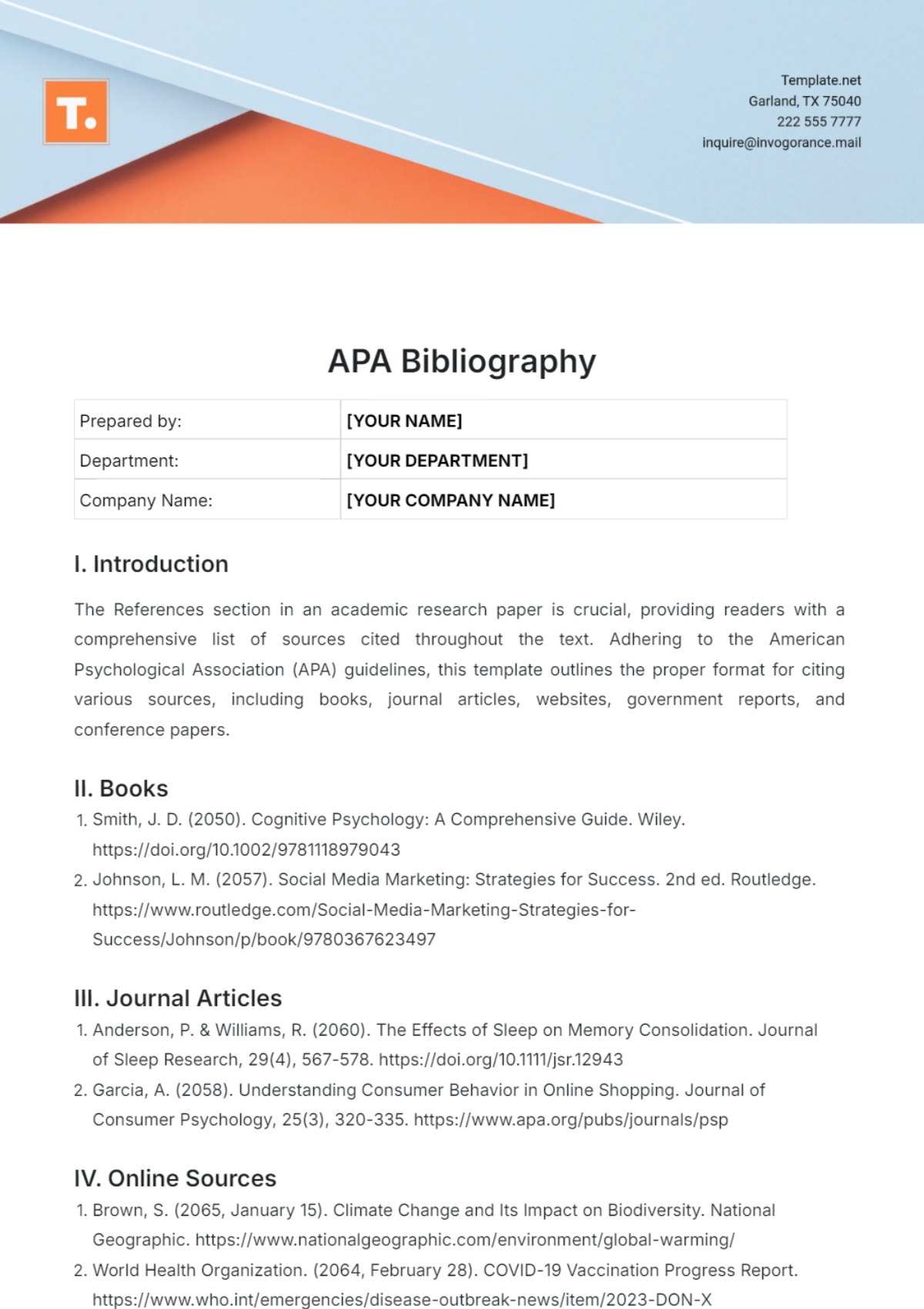Child Care Project Annotated Bibliography
Prepared by: | [YOUR NAME] |
Position: | [YOUR POSITION] |
Company Name: | [YOUR COMPANY NAME] |
I. INTRODUCTION
This annotated bibliography compiles a selection of research studies, articles, and publications that focus on essential topics related to child care, covering a variety of aspects, including child development, parental involvement, early education practices, and health and safety in child care settings. Each source is carefully chosen to provide a well-rounded understanding of child care best practices, challenges, and innovations.
II. ANNOTATED SOURCES
1. Berk, L. E. (2061). Child Development. Pearson.
Summary: This foundational text explores the stages of child development from infancy through adolescence, detailing cognitive, emotional, and social growth. Berk emphasizes how early childhood experiences significantly impact later development and suggests that high-quality child care is crucial for fostering positive developmental outcomes.
Relevance: This source provides essential insights into developmental milestones, supporting [YOUR COMPANY NAME]’s goals of implementing age-appropriate programs that cater to children’s growth in all dimensions—social, emotional, and cognitive.
Evaluation: Berk is a renowned expert in developmental psychology, and her work is frequently cited in early childhood education. Her reliance on evidence-based research solidifies this text as a trustworthy and relevant resource for child care practitioners.
2. Bronfenbrenner, U. (2059). The Ecology of Human Development: Experiments by Nature and Design. Harvard University Press.
Summary: This classic work delves into the ecological systems theory, which highlights how various environmental systems (e.g., family, school, community) interact to influence a child’s development. Bronfenbrenner examines how child care settings can play a positive role within this ecological model.
Relevance: This book’s insights are particularly useful for administrators at [YOUR COMPANY NAME], as it helps frame child care as part of a broader system impacting child growth and well-being.
Evaluation: Bronfenbrenner’s ecological theory is a cornerstone in developmental studies, making his findings valuable for child care professionals focused on holistic care that considers family and community dynamics.
3. Shonkoff, J. P., & Phillips, D. A. (2050). From Neurons to Neighborhoods: The Science of Early Childhood Development. National Academy Press.
Summary: This publication examines the biological and psychological foundations of early childhood development, underscoring the importance of early experiences. It provides evidence-based recommendations for creating supportive and enriching child care environments.
Relevance: Shonkoff and Phillips’ work aligns with [YOUR COMPANY NAME]’s commitment to science-backed practices, especially in designing environments that support the neural and emotional development of young children.
Evaluation: Both authors are respected authorities in early childhood development, and their work is backed by extensive research and data, making this a credible source for implementing best practices in child care settings.
4. Weiss, H. B., & Lopez, M. E. (2065). Engaging Families in Early Childhood Education. Harvard Family Research Project.
Summary: This article discusses strategies for enhancing parental involvement in early childhood education, highlighting the benefits of strong family-provider partnerships. The authors argue that engaged parents contribute significantly to their children’s success in early education settings.
Relevance: This source is particularly useful for [YOUR COMPANY NAME], as it offers actionable strategies to improve family engagement, which can lead to better educational outcomes for children.
Evaluation: Weiss and Lopez are experienced researchers in family engagement, and their evidence-based recommendations provide a solid foundation for child care professionals aiming to foster stronger partnerships with families.
5. Allen, R., & Daly, K. (2057). The Effects of Father Involvement: A Summary of the Research Evidence. University of Guelph.
Summary: This report reviews research on the impact of father involvement in child development, noting positive outcomes in children’s cognitive, social, and emotional growth. The authors advocate for encouraging father participation in child care and educational settings.
Relevance: By recognizing the role of father figures, [YOUR COMPANY NAME] can develop inclusive programs that promote diverse family involvement, aligning with its goals of supporting all aspects of child development.
Evaluation: Allen and Daly’s review is well-regarded in family studies, with a comprehensive analysis that is beneficial for child care providers seeking to incorporate family dynamics into care models.
III. CONCLUSION
This annotated bibliography offers a collection of insightful and research-driven resources designed to enhance understanding and implementation of effective child care practices. Each source was selected for its relevance, reliability, and alignment with [YOUR COMPANY NAME]’s mission to support child care professionals in providing high-quality care and fostering positive development outcomes for children. These references provide a solid foundation for further research and application within the field.
